The Numbers and People That Tell the Story of AI Horizons 2025
By: Carlos J. Queirós
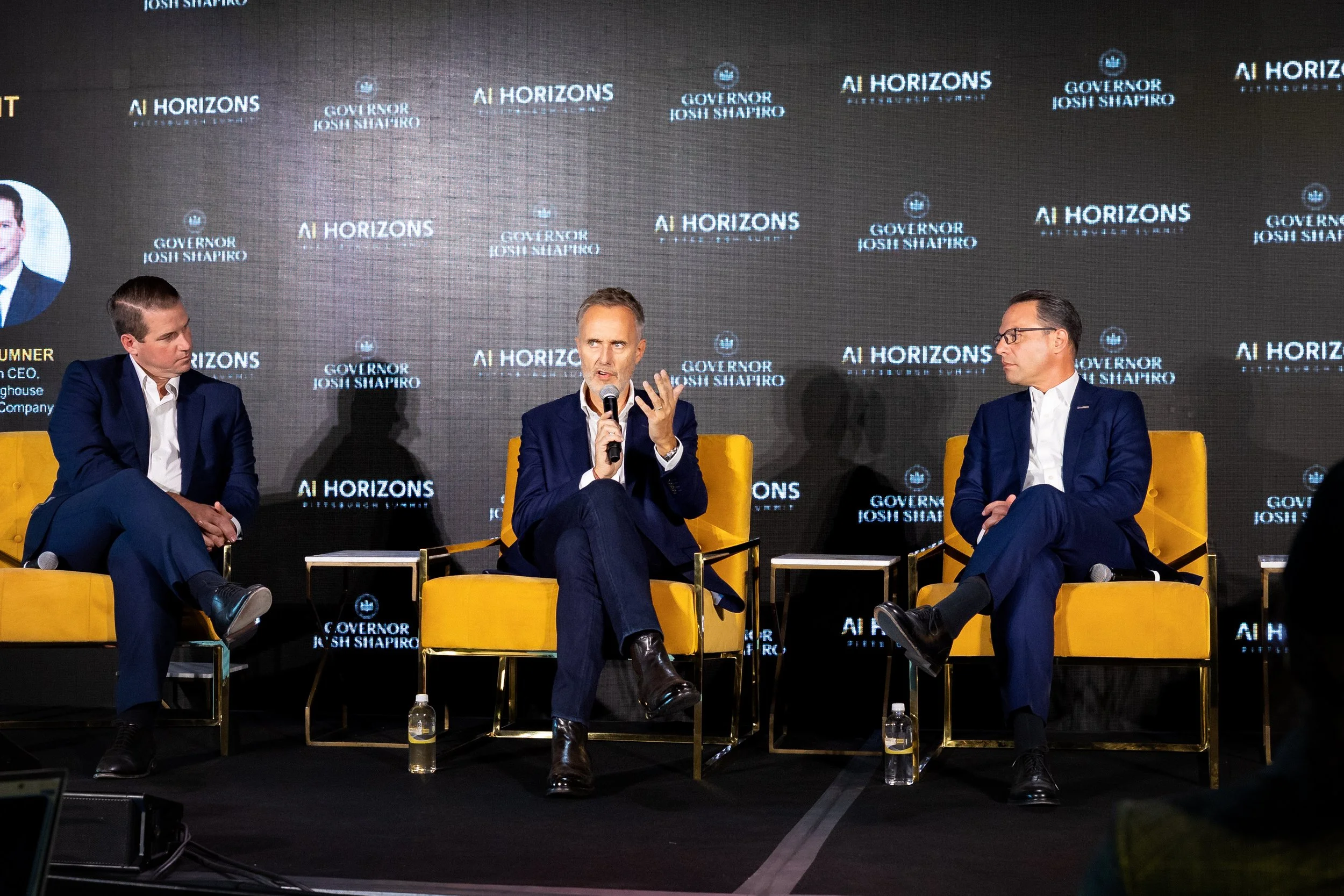
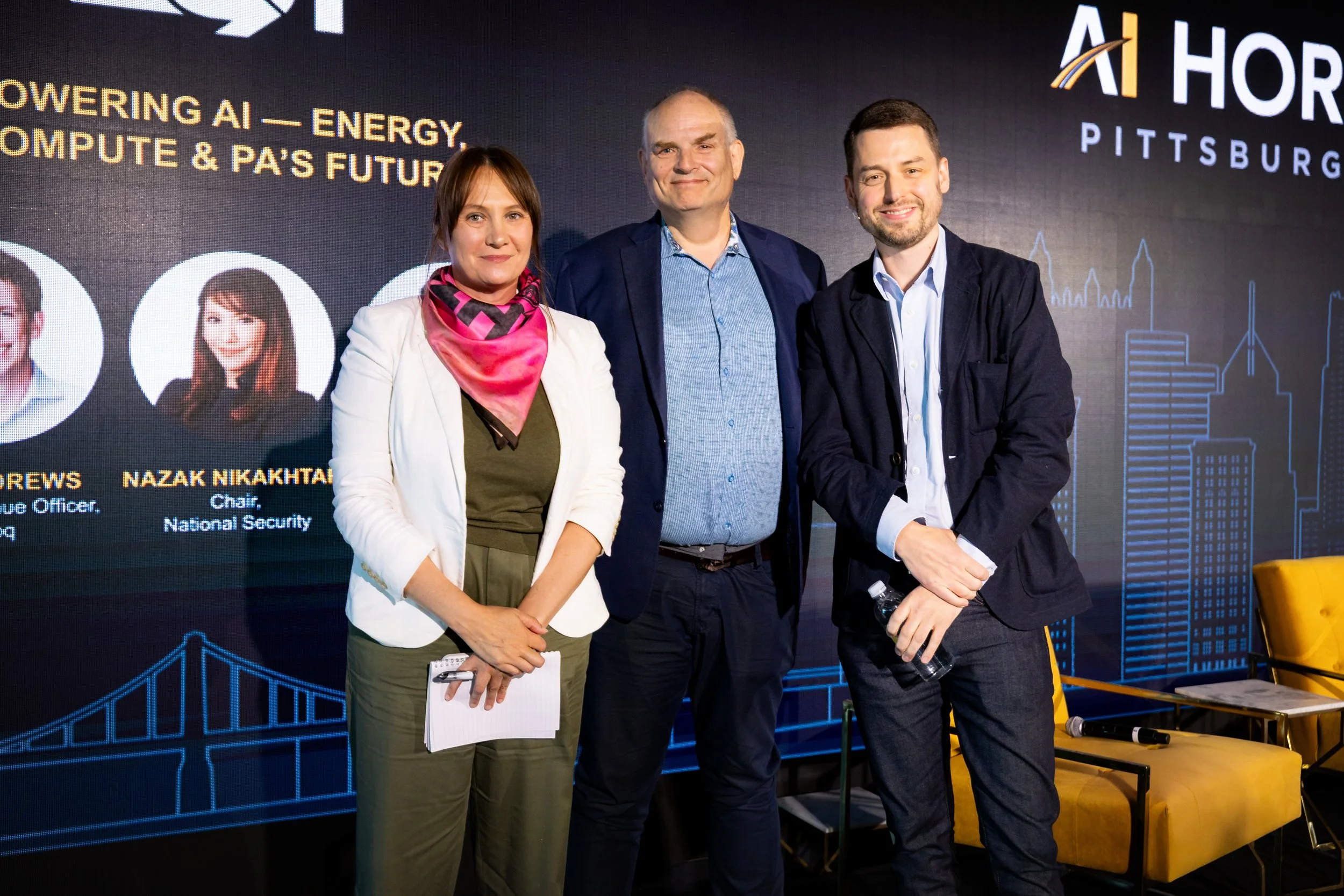
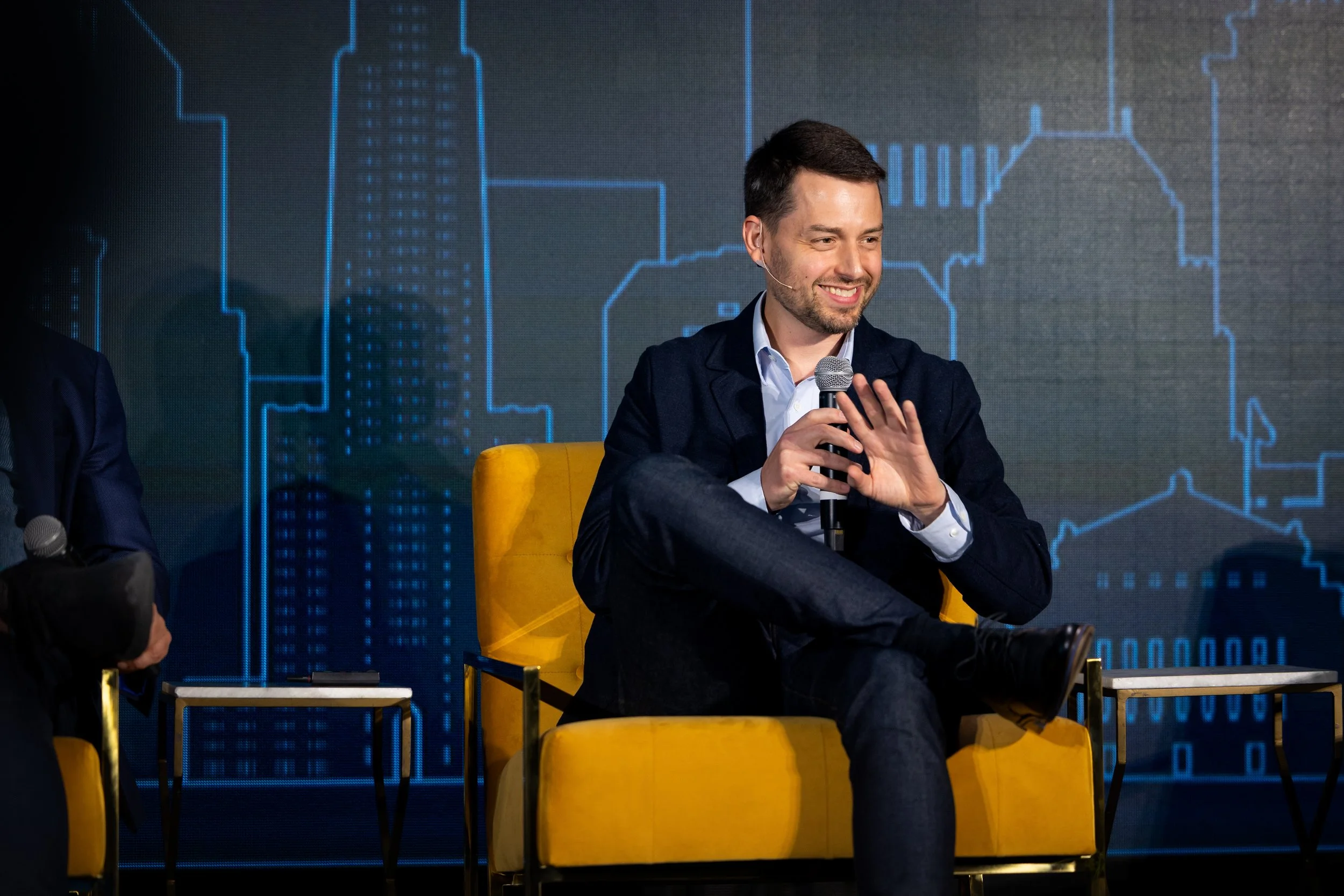
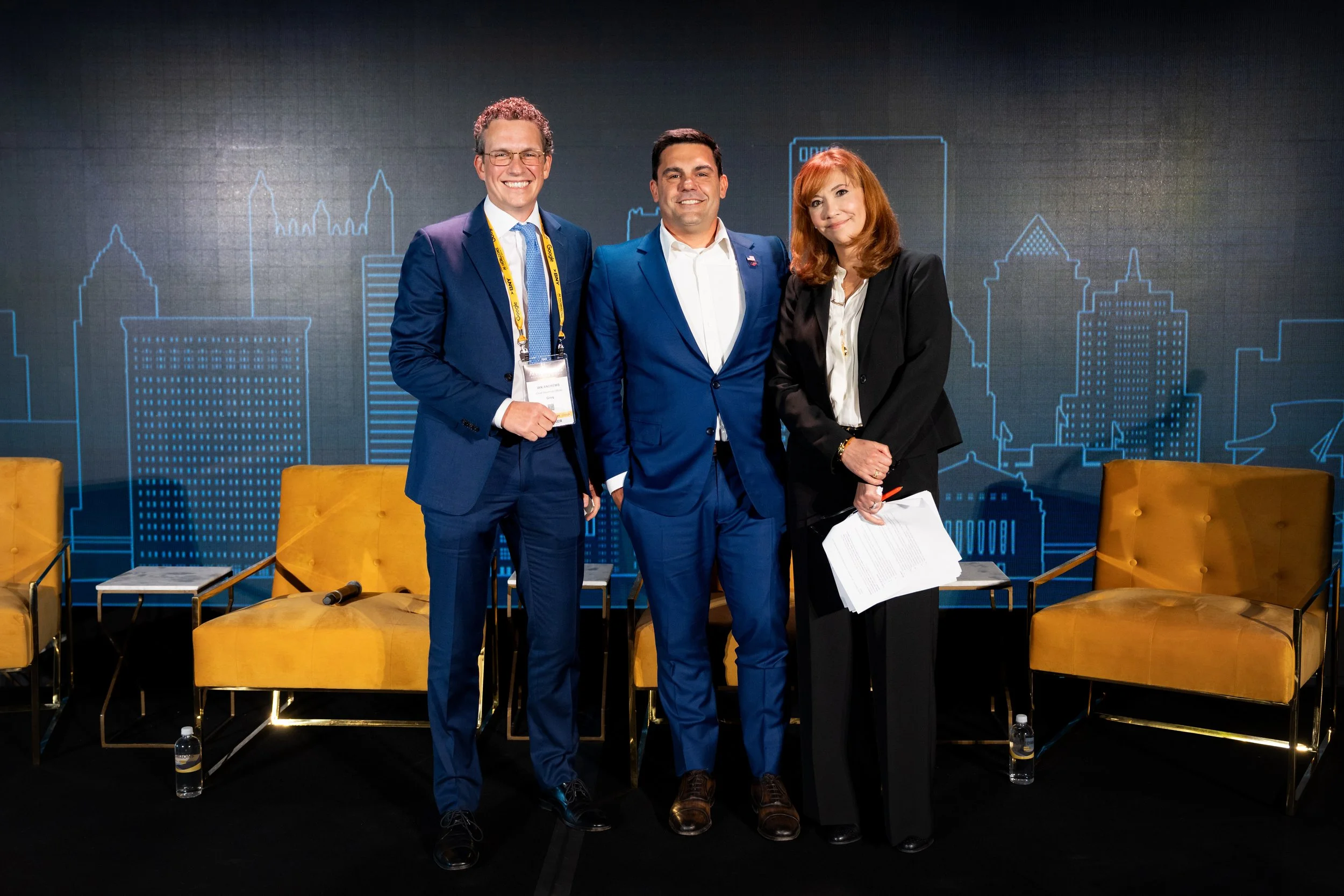
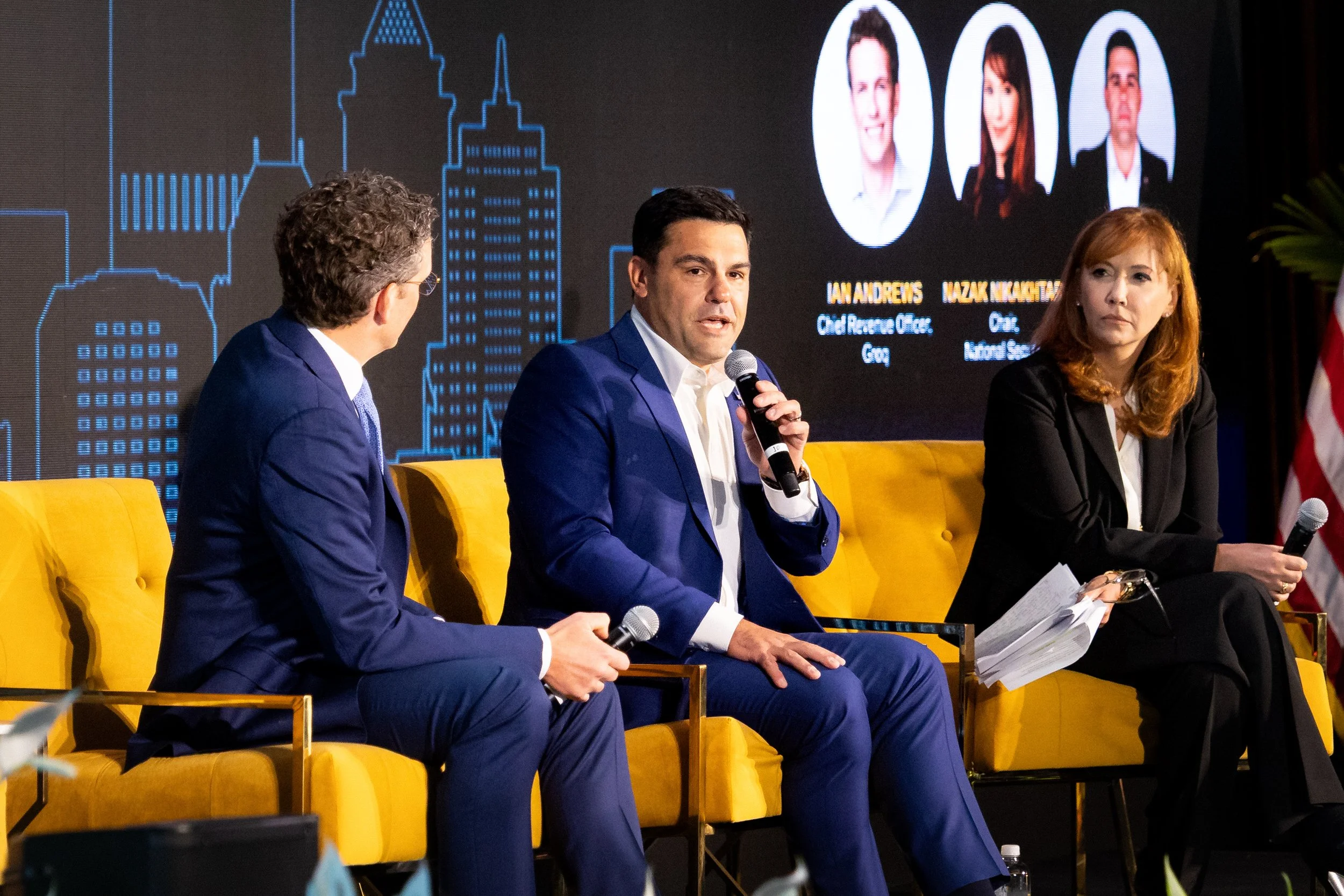
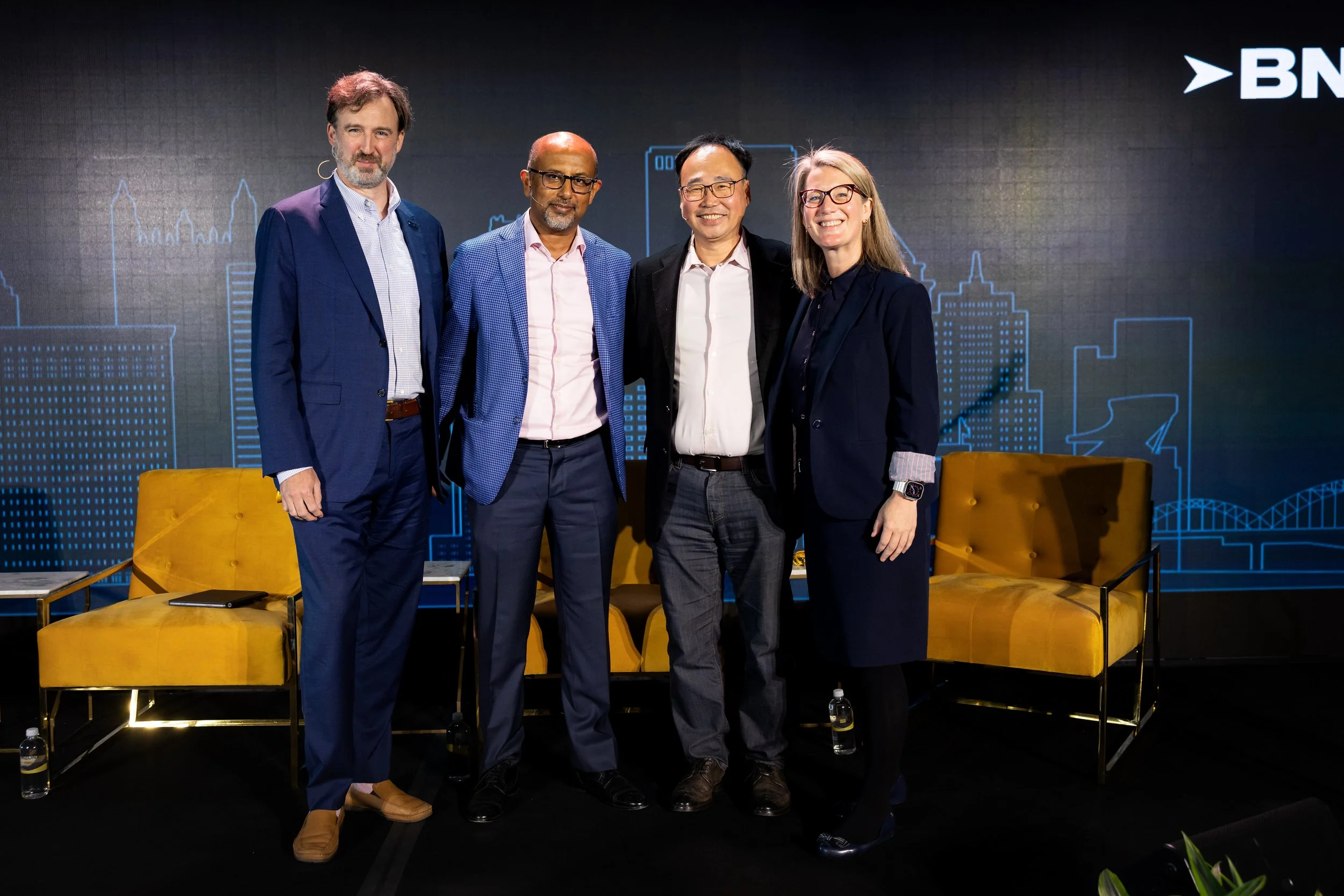
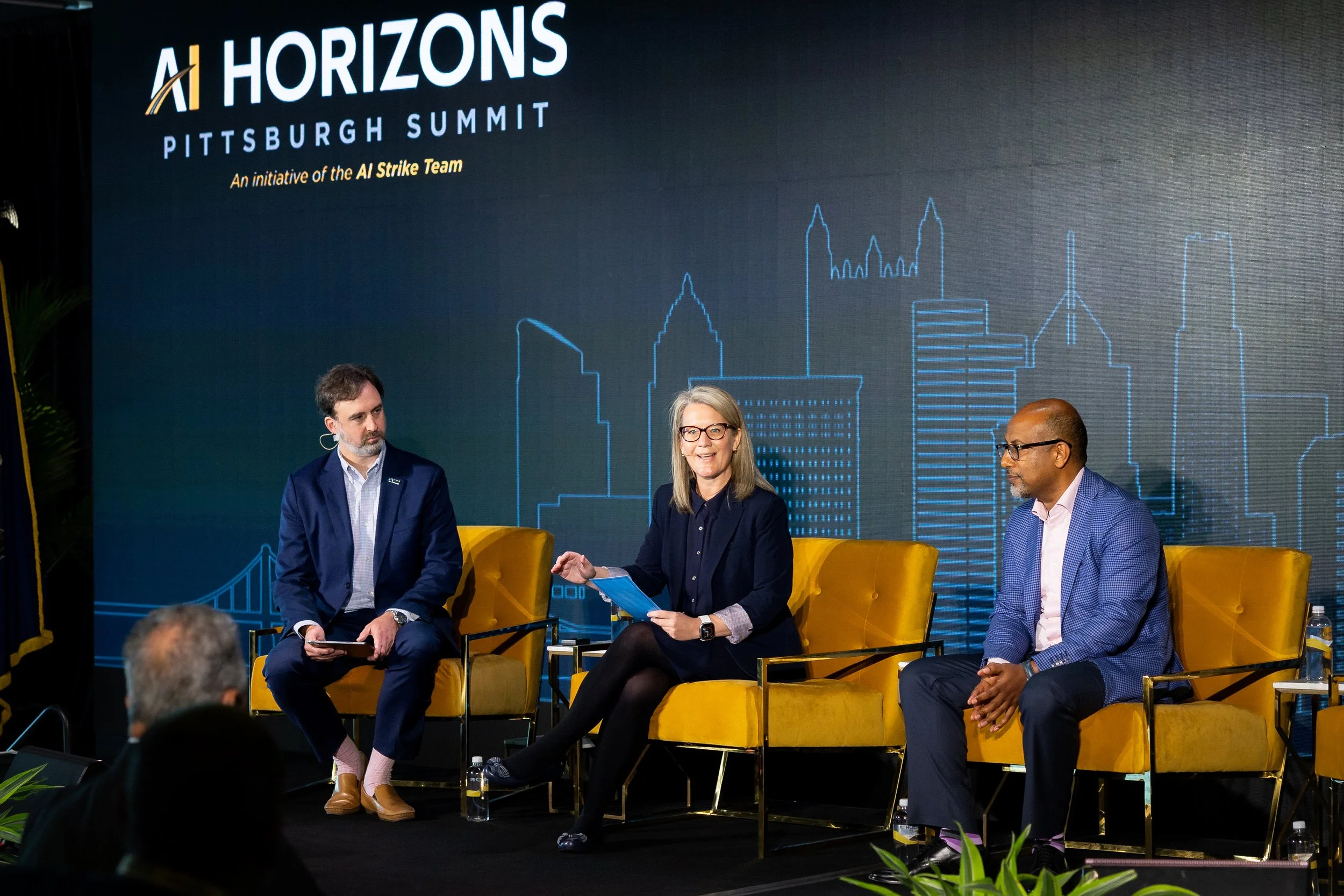
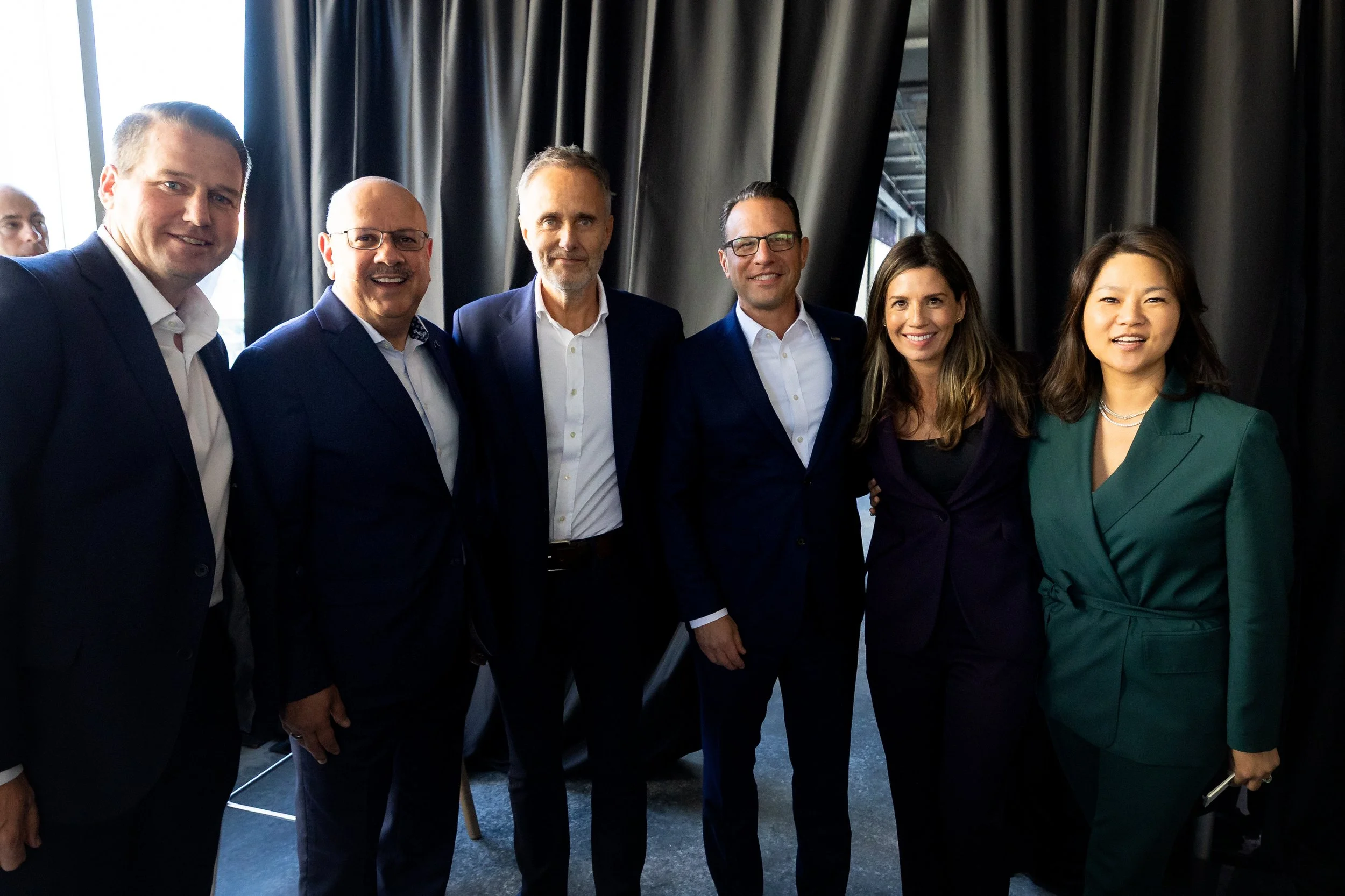
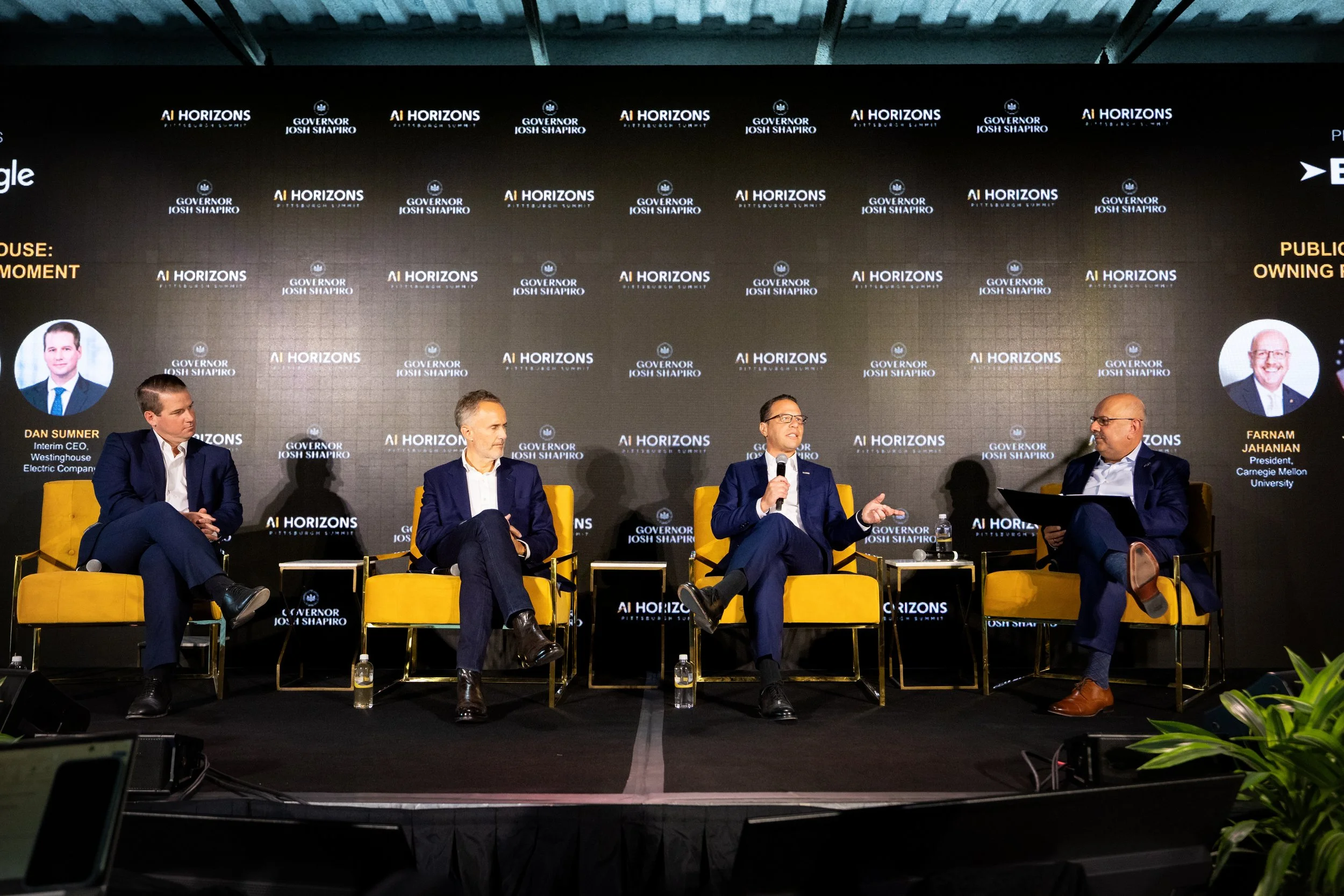
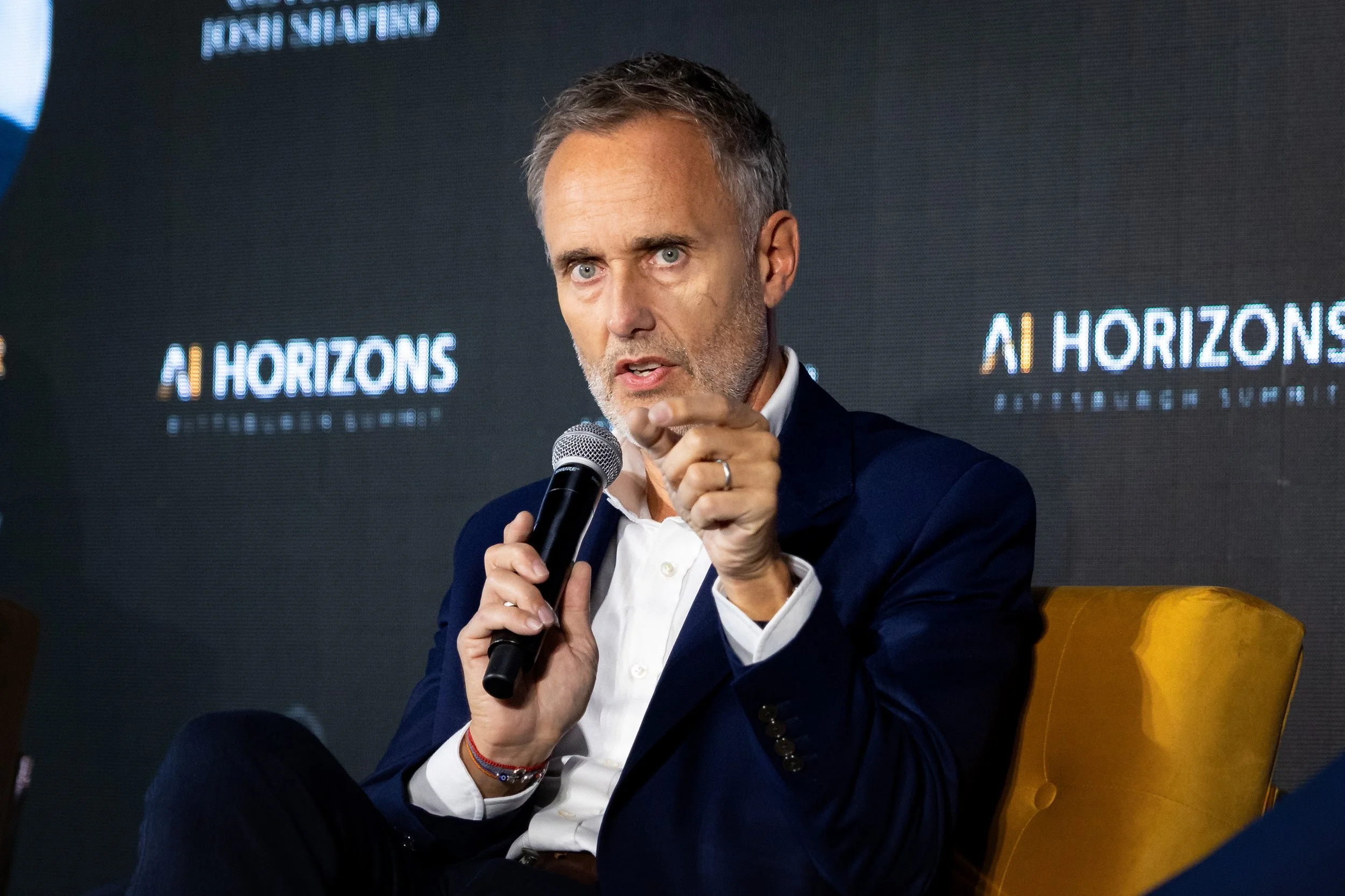
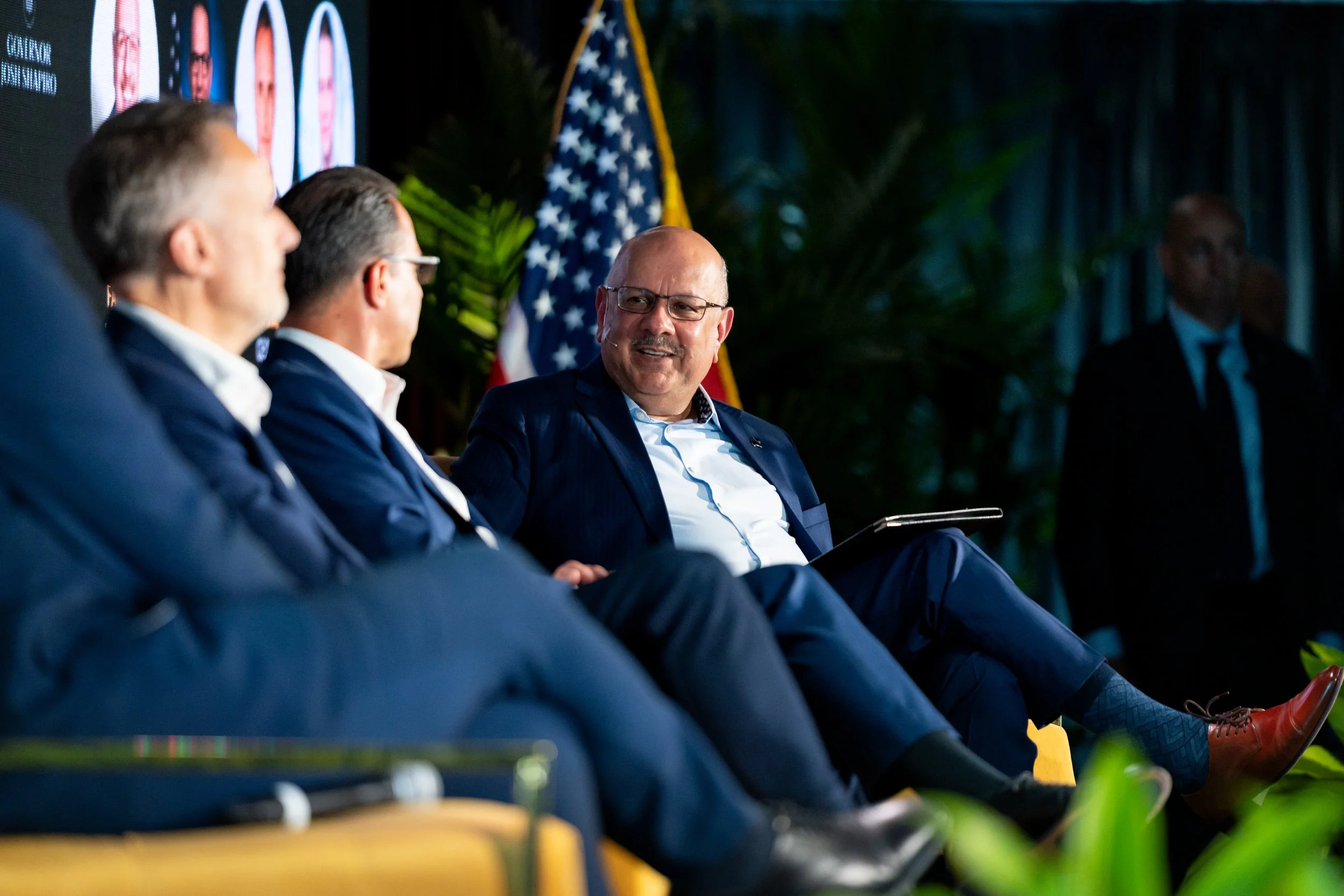
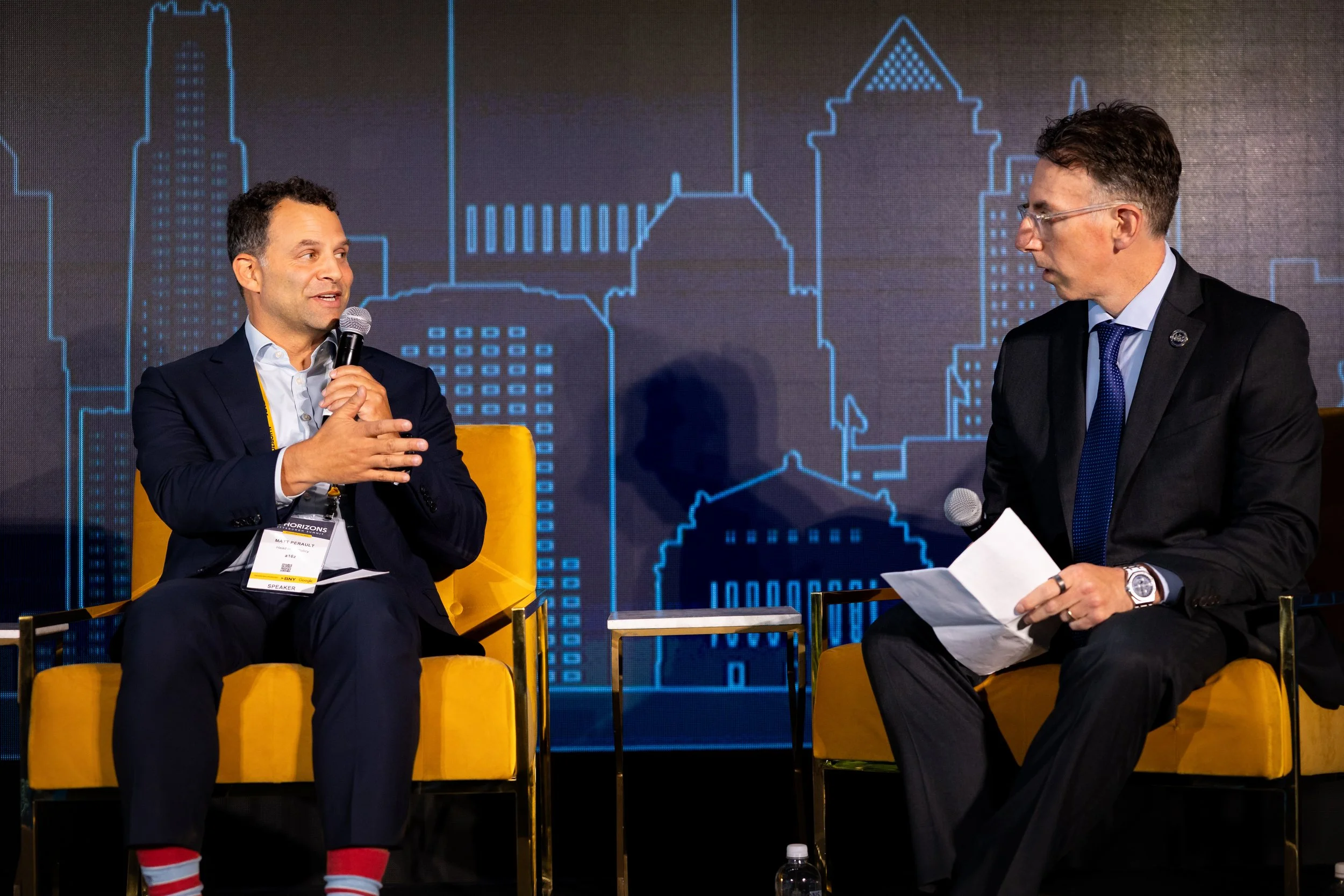
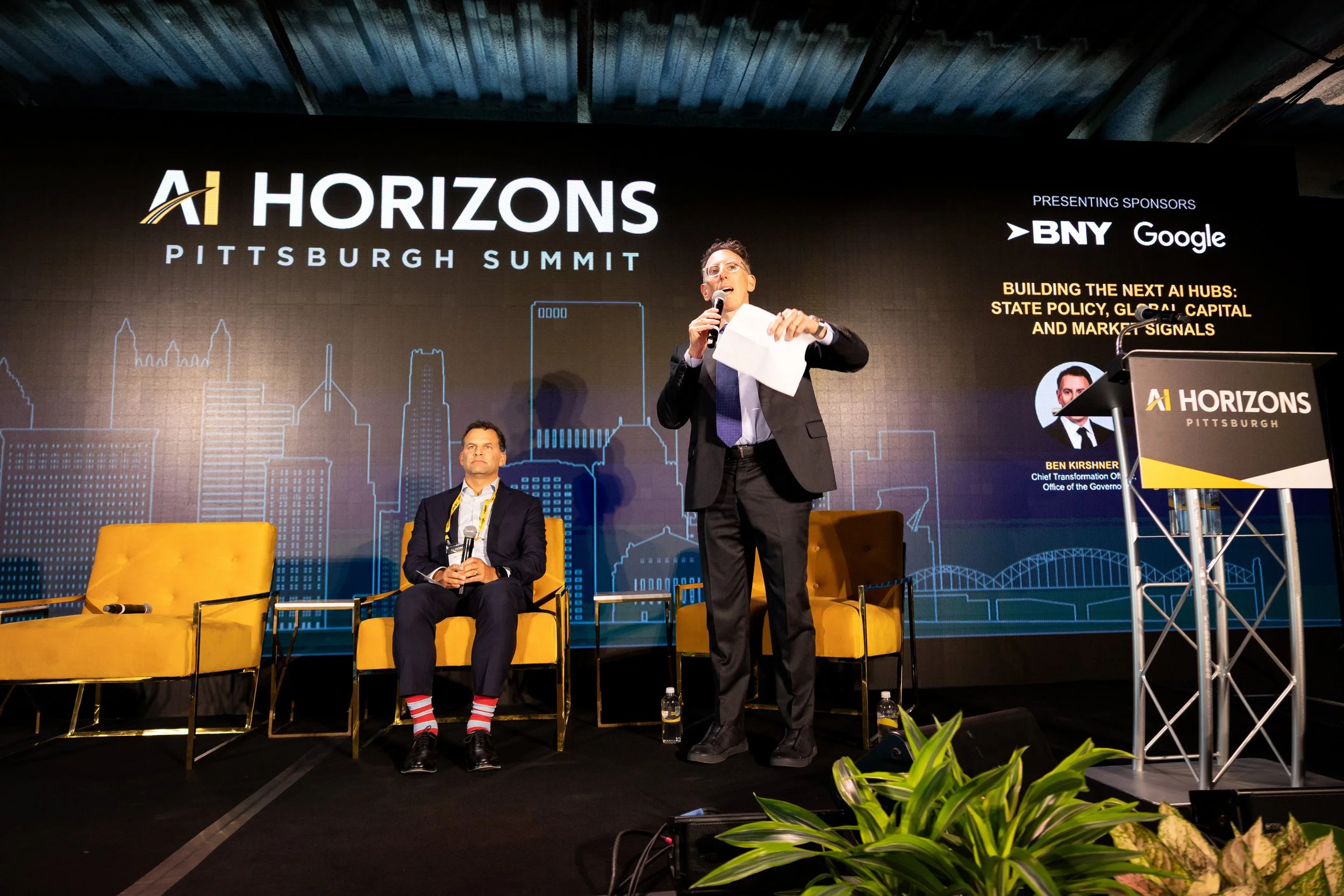
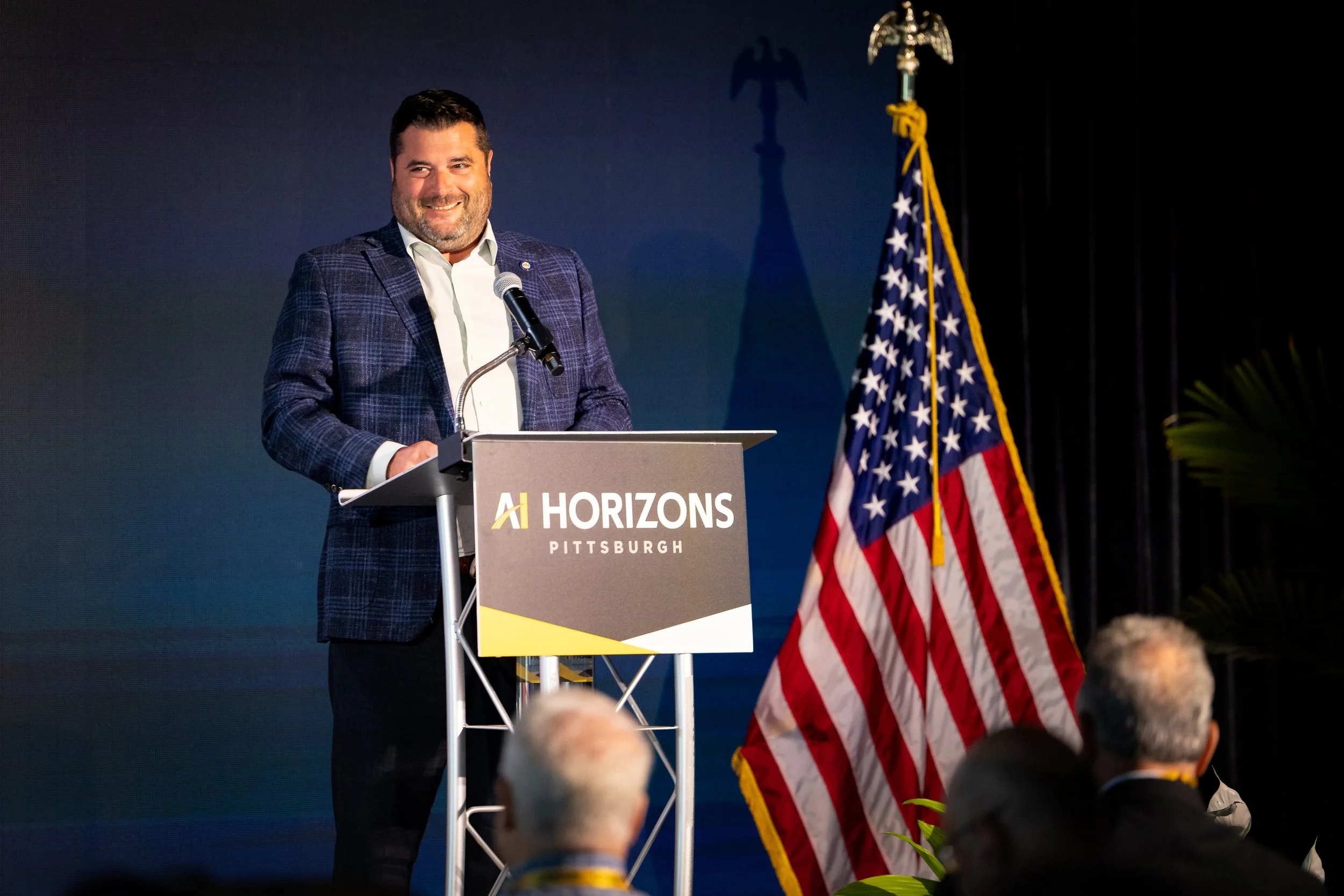
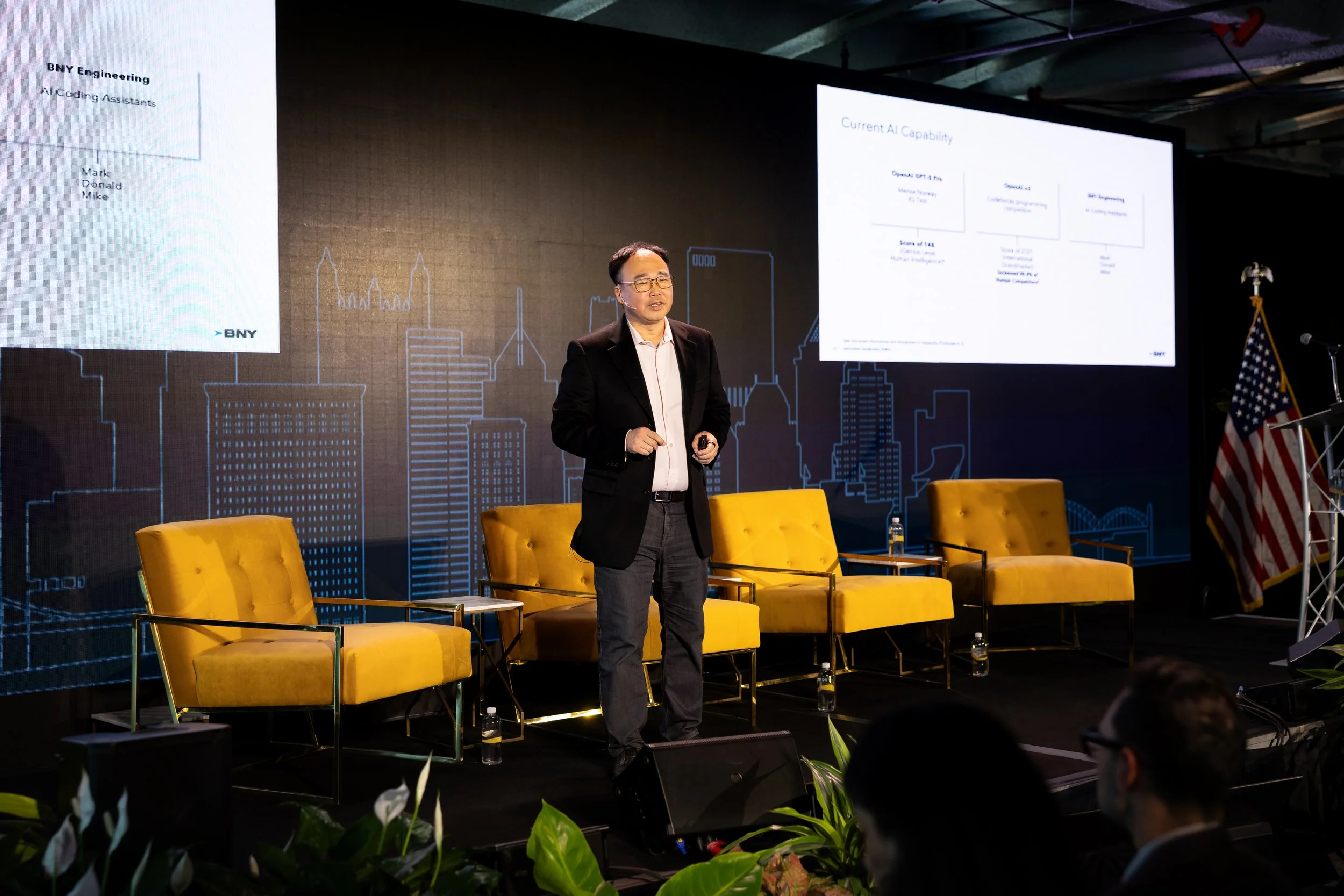
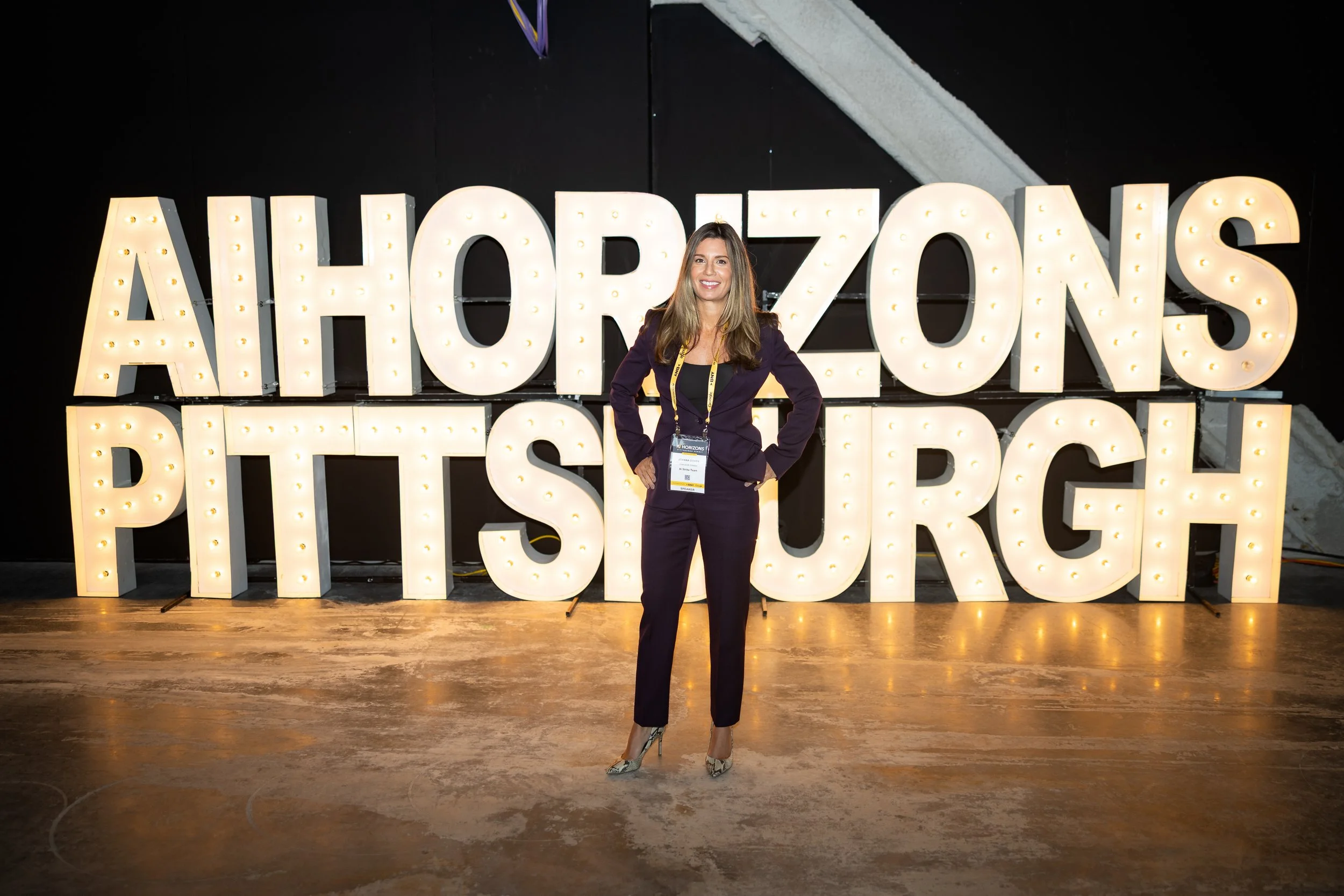
Pittsburgh: The Steel City.
The Sports City.
And now—the AI Deployed City.
$13 billion in venture-backed valuations in six months tells a remarkable story. But the real story goes deeper than capital—it's about implementation.
While other cities hype AI, Pittsburgh puts it to work. The question isn't whether Pittsburgh has become an AI powerhouse—you’ll see the numbers below already prove we’re well on our way.
The real questions become how quickly will this emerging ecosystem reshape American industry and this new economy? Who will want in? Can they act quickly enough?
The AI Horizons Summit captured this transformation in real time, bringing together the builders, deployers, and many others who are already making it happen.
From a sellout crowd to unicorn valuations, from factory floors to government offices, these metrics reveal a city and region that's moved beyond potential to proven results.
58 Minutes to Sellout: The AI Summit That Doubled in Size
In just 58 minutes, 800 attendees registered, creating a 1,000+ person waitlist. Remarkably, about 25% flew in from out of town, representing 17 states, with about 80% being first-time attendees. Ten different countries also joined via livestream.
This second-year summit doubled in size from its inaugural event, spanning three days with the inaugural Forge AI pitch competition, powerhouse keynote speakers, and four concurrent breakout tracks—all backed by 15+ sponsors (BNY and Google leading the pack).
But here's what matters most: it created the room where legacy industrialists, global tech leaders, startups, and government all came together to accelerate AI adoption and deployment. As AI Strike Team Executive Director Joanna Doven explained, the gathering was intentionally diverse:
"We have university and research leaders... labor unions philanthropies and policy makers, private capital from Pittsburgh and from around the globe, sports leaders, AI and energy innovators and... industrial titans the people leading the companies today.
Doven —who leads the bipartisan initiative positioning Pittsburgh as the AI deployment capital—also set the stakes: ""Pittsburgh is now the most concentrated AI investment hub in the nation outside of Silicon Valley."
Why Pittsburgh? The answer is simple. Legacy industrial giants need AI, and AI innovators grow where there are problems worth solving and executing on today.
The stage perfectly embodied this philosophy, with century-old titans meeting two-year-old unicorns.
"AI Deployed: In Pittsburgh. For the World"—the summit's official tagline—captured what hundreds witnessed firsthand over the course of these three days.
Top 3 Nationally: The Deployed Readiness Ranking
Pennsylvania now ranks top 3 nationally for AI readiness, as confirmed by Code for America's 2025 Assessment. Mark Muro of Brookings Metro, whose research benchmarked hundreds of U.S. metro areas, confirmed the region's standing: "Overall [we] rank you number seven for readiness in the United States... behind the Bay Area metros but in the conversation with New York and Boston and ahead of Seattle".
But readiness is just the beginning. Pittsburgh doesn't just prepare for AI—it actively deploys it.
Senator McCormick emphasized the urgency: "We're not gonna win with incrementalism. This has to be disruptive. We're gonna get disrupted one way or the other. The question is whether we're gonna be the disruptor or the disruptee."
National security attorney Nazak Nikakhtar laid out the global stakes: "With its vast resources, enormous capital, energy, workforce, the Chinese government is leveraging its resources to beat the United States in AI development."
Toby Rice, CEO of EQT, put the competition in stark statistical terms: "China just last year added... almost 60 gigawatts of power gen. Nearly 10 times the amount of power capacity that the United States added... Can you understand the challenge that we have in front of us?"
The response? Deploy faster.
11% of America's Roboticists: The Deployed Talent Concentration
An astounding 11% of U.S. roboticists work in Pittsburgh—and this isn't by accident. This is where AI gets is enlisted for real solutions.
Pittsburgh's 40-year robotics history created this ecosystem. For example, Carnegie Mellon's 2007 DARPA Urban Challenge victory led to key team members joining Google's self-driving car project, which later became Waymo.
Carnegie Mellon ranks #1 globally in AI across five categories according to Code for America's 2025 Government AI Landscape Assessment, while Pennsylvania ranks top 3 nationally for AI readiness.
The results speak for themselves: 91% job placement overall, rising to 98% for CS masters students, with an average starting salary of $117,513.
The university has generated 50+ spinoff companies in five years, collectively raising over $1 billion since 2011. Currently, 117 countries send students here, comprising 45% international enrollment. Many stay after graduation, drawn by the unique opportunity to deploy AI where legacy meets innovation.
CMU Machine Learning Department Head Zico Kolter captured the momentum:
"There is no other field where academic papers can turn into companies just two years later. This is not the future. It's happening right now."
Abhinav Gupta, co-founder of Skild AI, added Pittsburgh's deployment philosophy: "Here in Pittsburgh I found people bet on new people and when they bet they go all the way... we do not believe in just fancy stuff, we want to make things work and that's the kind of DNA which Pittsburgh ingrains in their talent."
Andrew Moore, Co-Founder and CEO of Lovelace AI captured the urgency: "We got to work now."
$28 vs $60 Per Square Foot: The Deployed Economic Advantage
Pittsburgh offers compelling economics: office space can cost $28 per square foot, compared to Silicon Valley's $60 and Austin's $45.
Energy costs remain competitive at 17.67 cents per kilowatt-hour—crucial for deployed AI infrastructure.
AI engineers earn $148,627—competitive nationally and transformative locally, representing more than double the regional average.
Pittsburgh's tech sector now employs 241,804 people. That's 19.6% of the regional workforce generating 28% of total wages through operational AI solutions.
The ecosystem has reached critical mass: 100+ AI and robotics companies actively implementing solutions, including 20-plus AI companies on “AI Avenue” alone and 21 firms within one mile of Bakery Square.
“There is no other field where academic papers can turn into companies just two years later. This is not the future. It’s happening right now.”
100+ Companies Deploying Physical AI: Pittsburgh's Differentiation
While others perfect chatbots, Pittsburgh's 100+ AI and robotics companies put actual robots to work—today, in factories, hospitals, and warehouses.
However, as Gecko Robotics co-founder Jake Loosararian noted, the physical world presents a unique data challenge: "The fourth industrial revolution... did not digitally transform. Therefore you do not have the the framework to be able to leverage artificial intelligence to transform everything in the physical world... if you don't have fuel to put inside of your Ferrari, your Ferrari won't move."
Major players are leading the transformation: Ansys has become one of the world's top Physical AI leaders post-Synopsys acquisition. Meanwhile, legacy giants like Wabtec (founded 1869) use AI to keep freight moving, and Alcoa (founded 1888) deploys AI to improve safety and optimize supply chains.
"Whenever we make an investment be it in physical equipment or in AI we are looking at what type of a return do we get," stated Alcoa CEO William Oplinger, capturing the pragmatic industrial mindset. "That's what industrial companies are going to ask you to prove very quickly before they make the big leap into AI."
These aren't just use cases—they're active transformations of American industrial infrastructure.
Dean Martial Hebert from CMU provided context spanning Pittsburgh's 40-year deployment history: "We tend to lose track of the fact that the advances that we seek, and the unicorns are the results of very long-term research... Skild AI is the shining example of that."
Carnegie Mellon President Farnam Jahanian added: "The growing power of artificial intelligence is perhaps the most important intellectual development of our time."
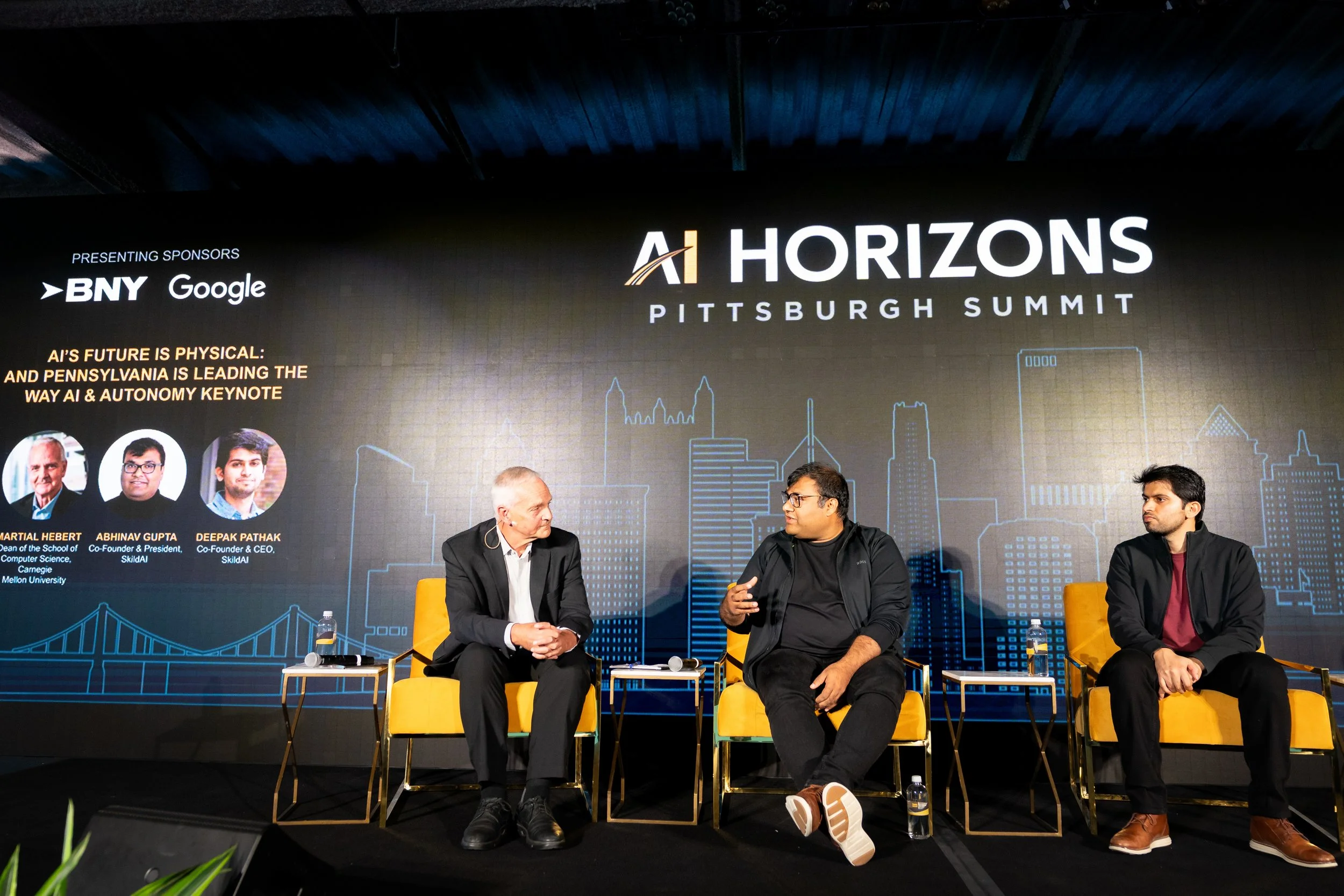
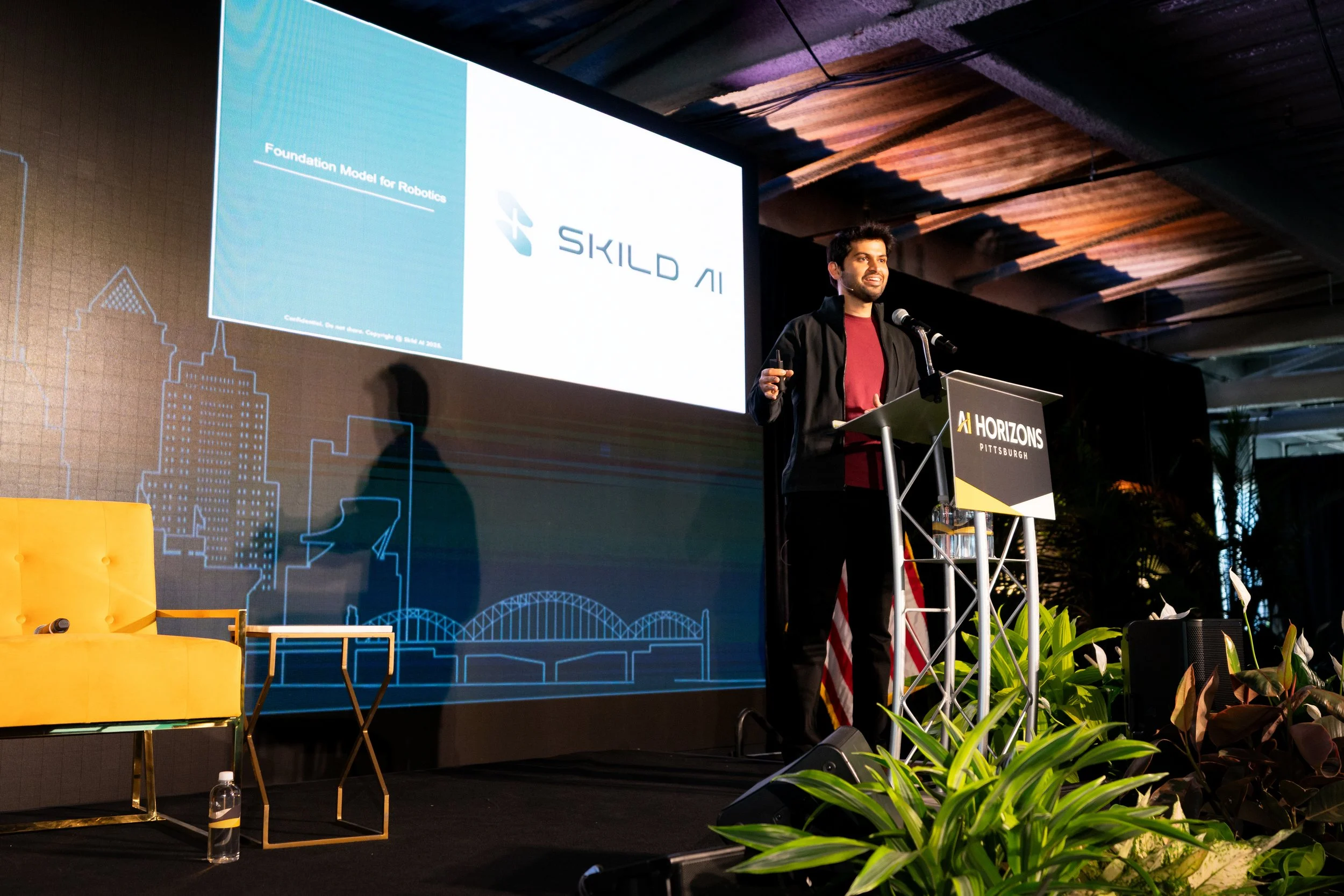
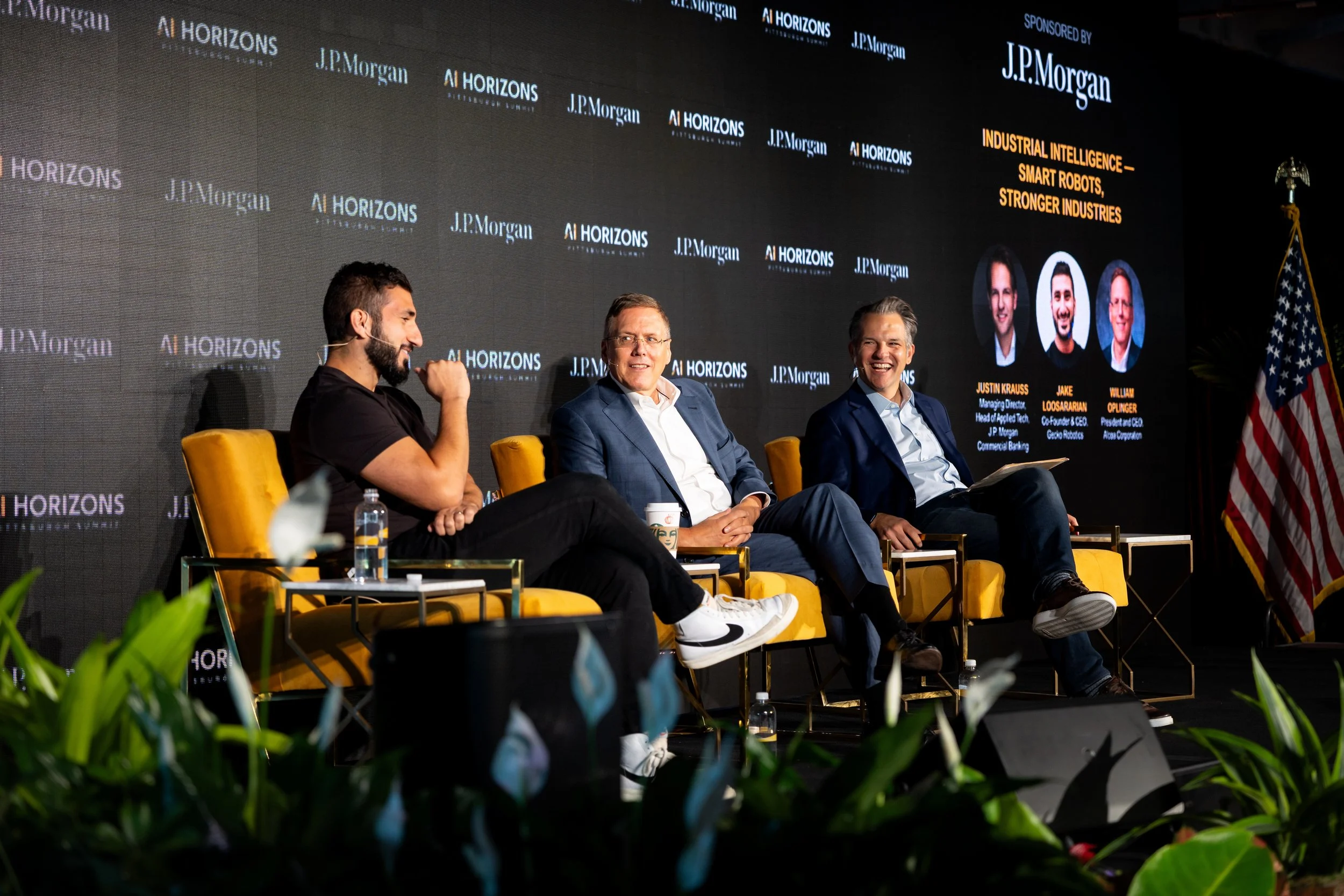

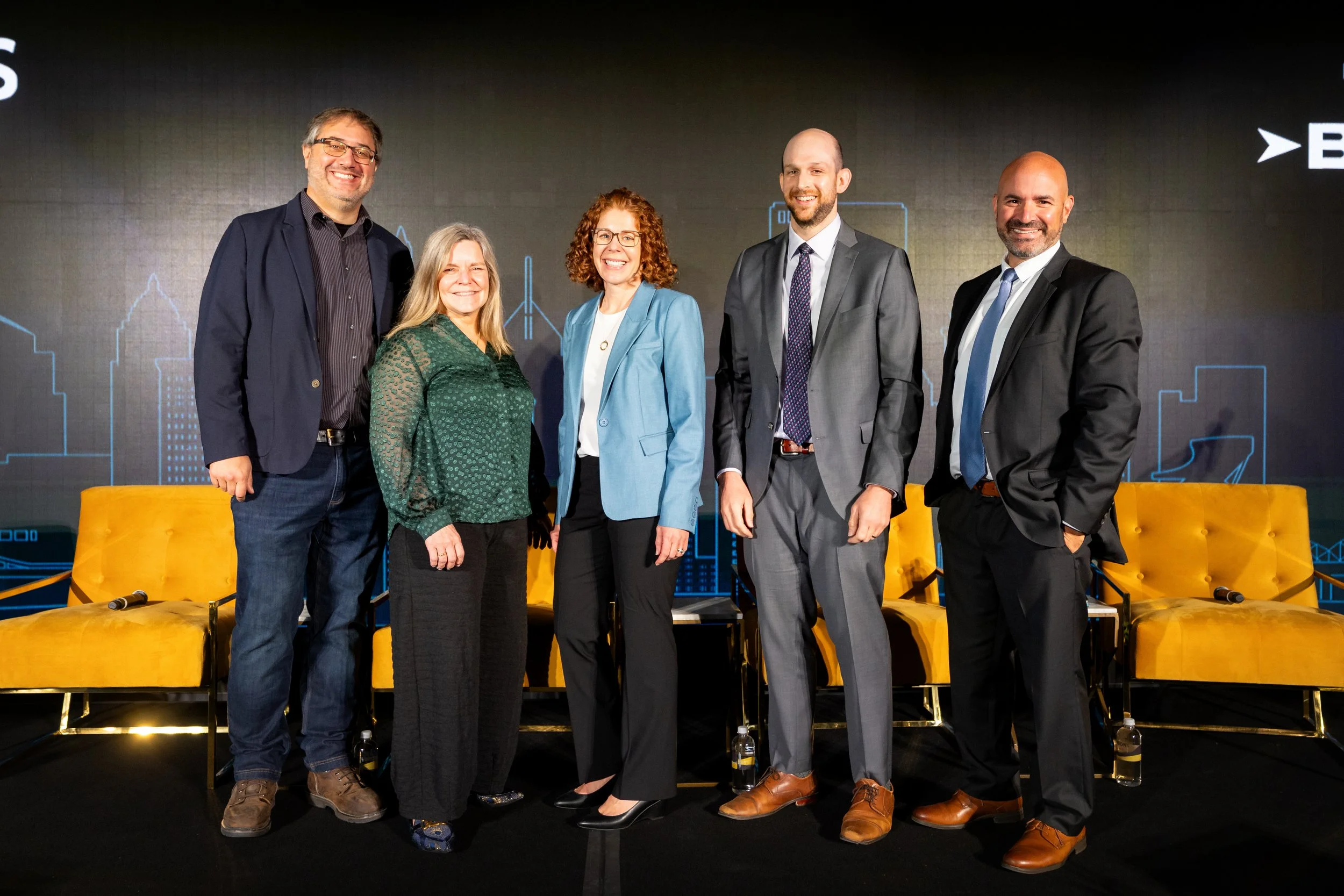
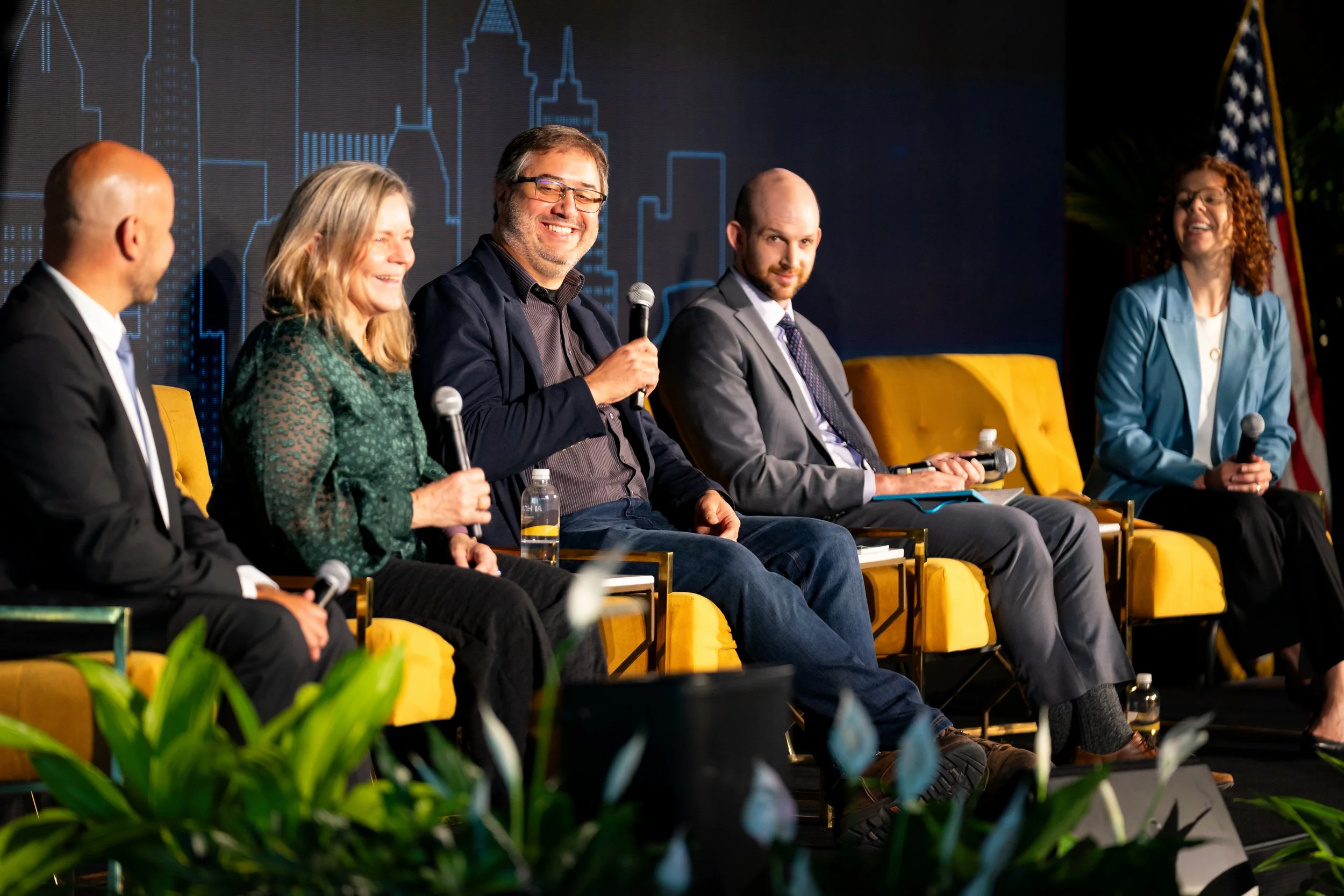
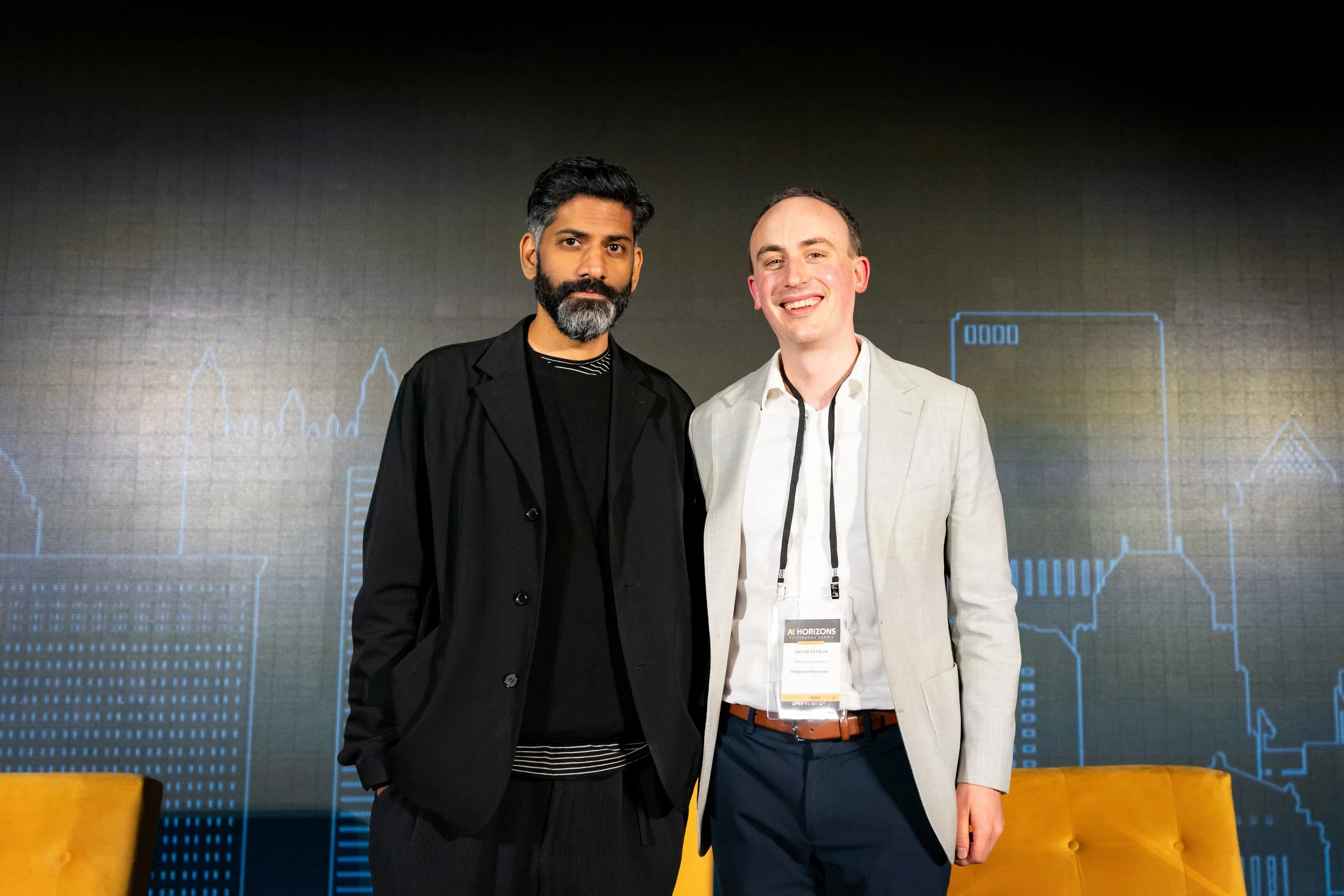

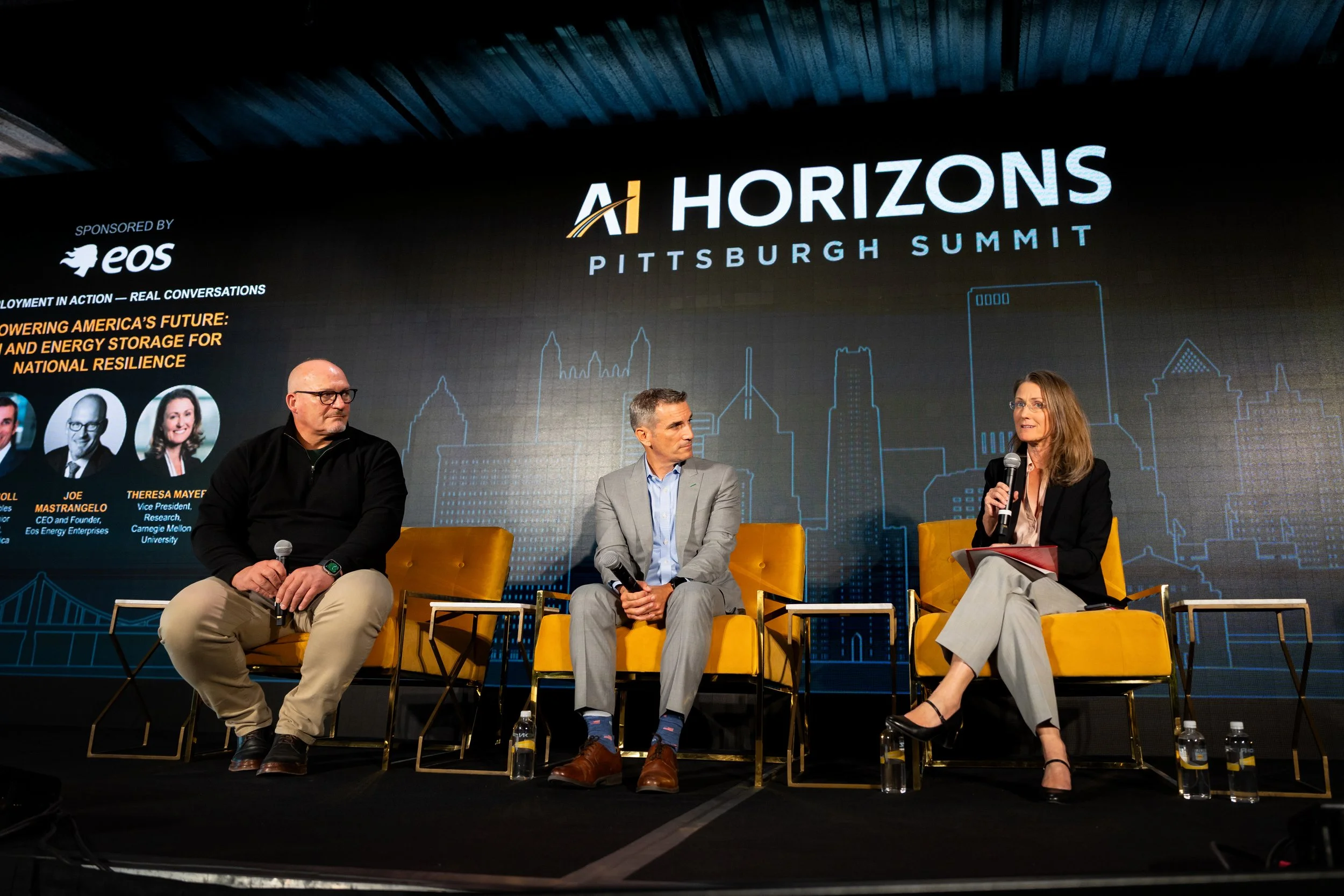
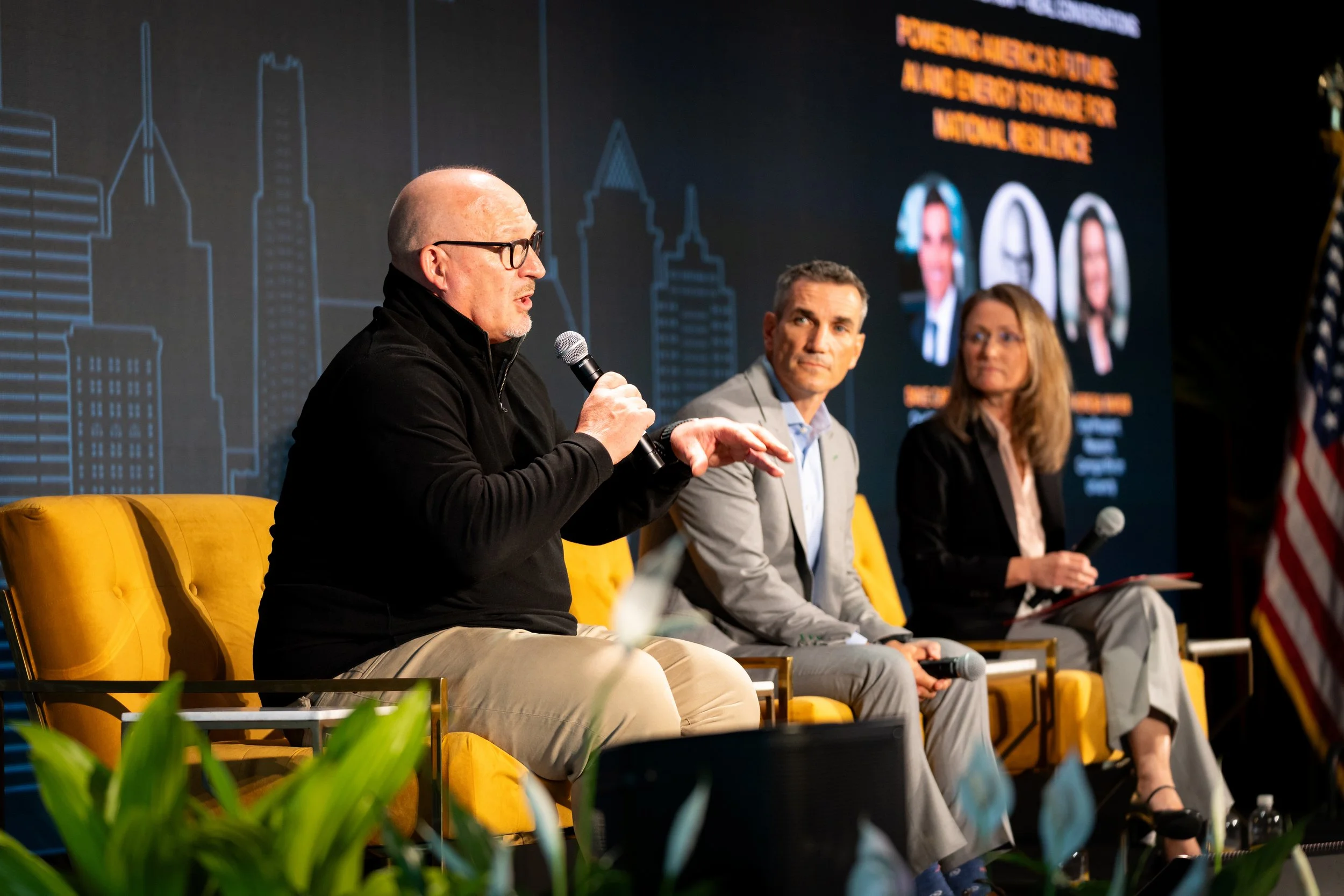
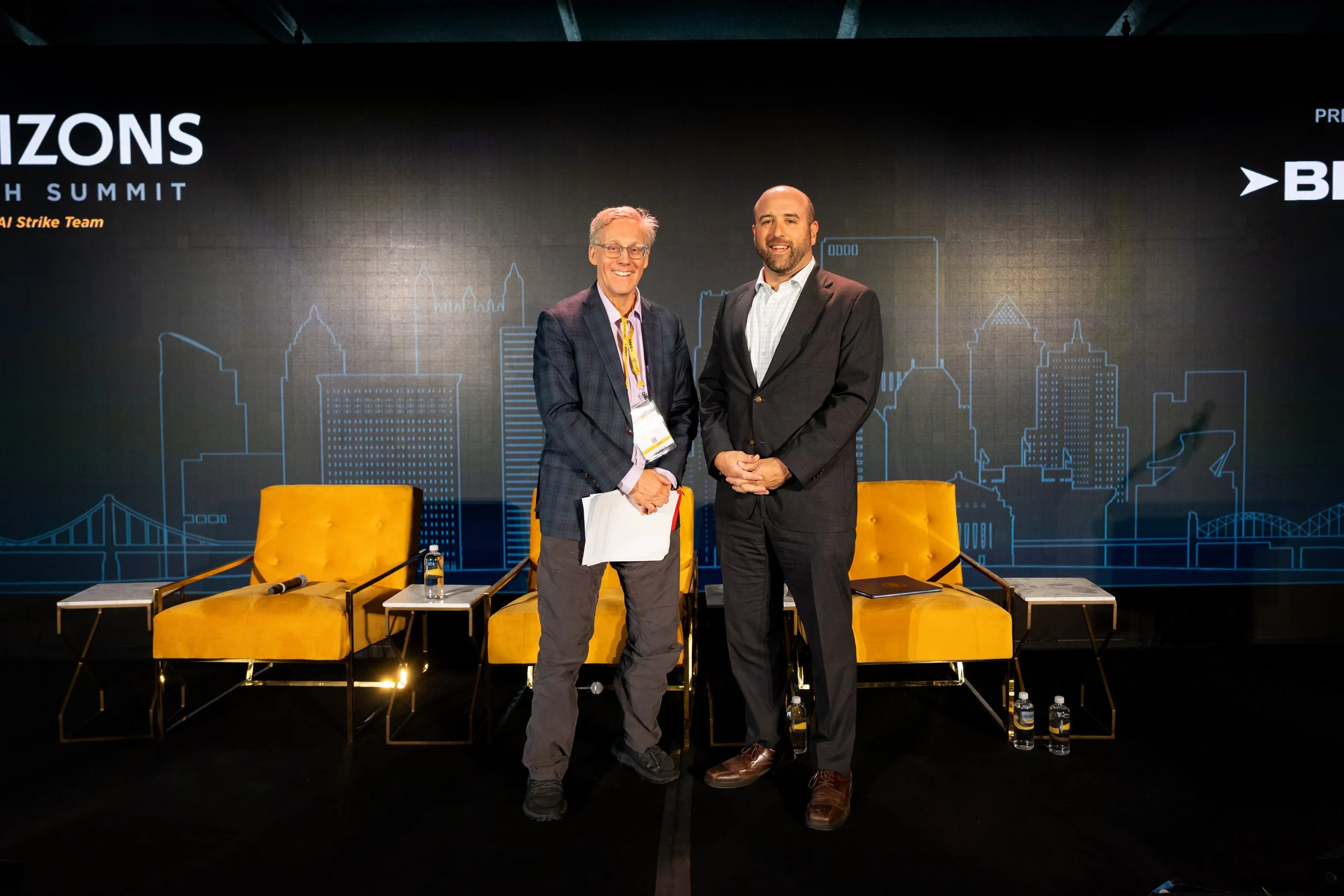
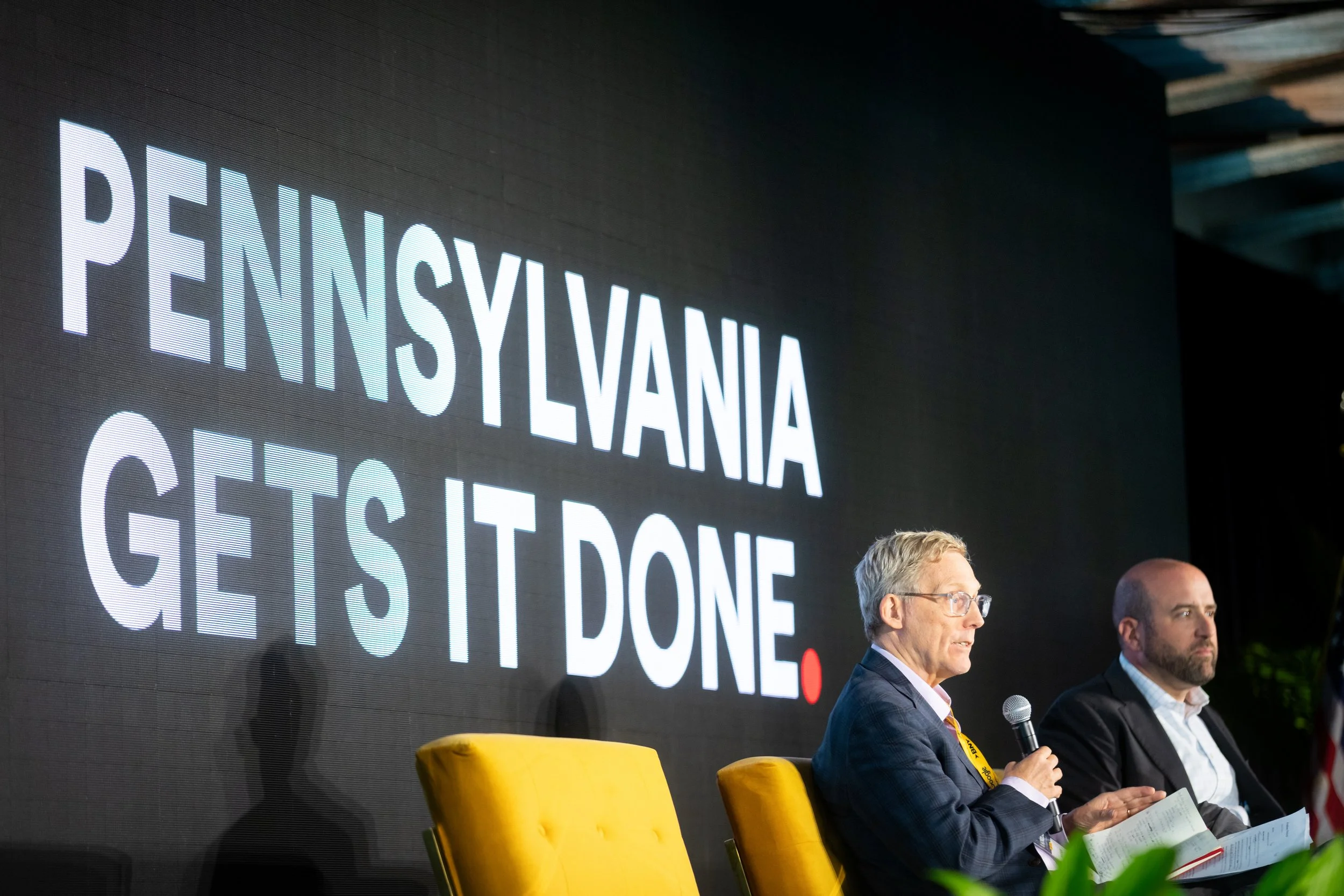
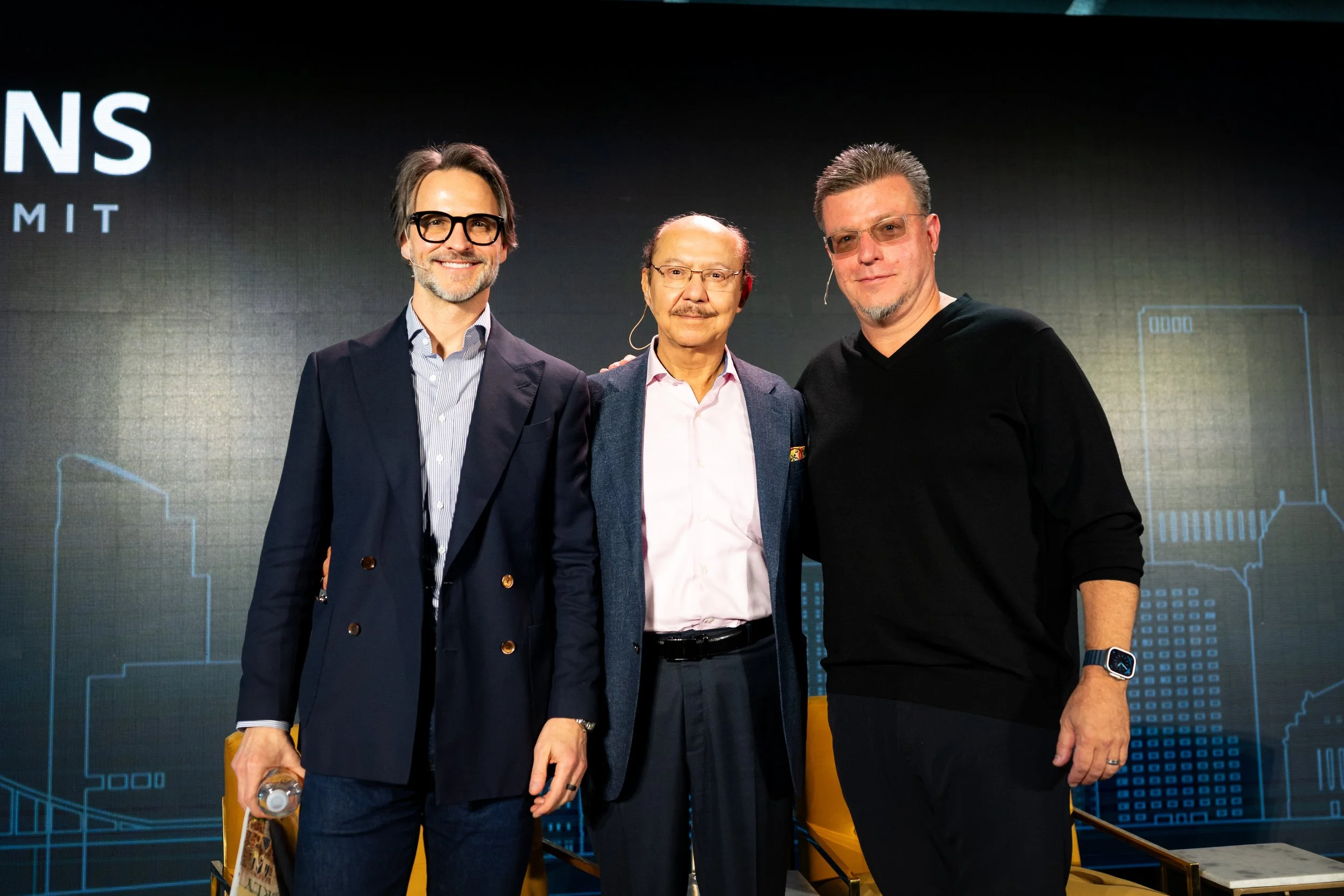
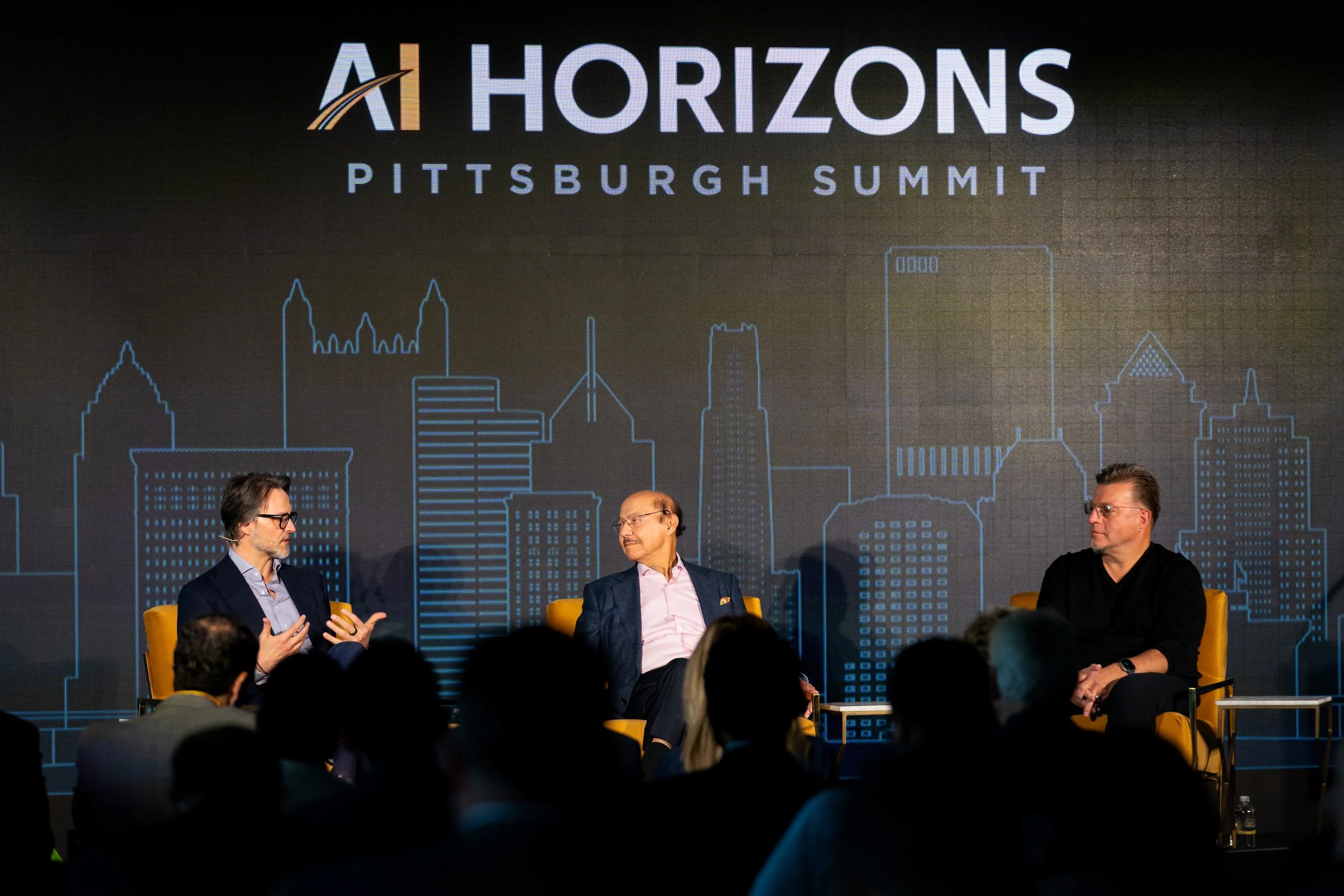
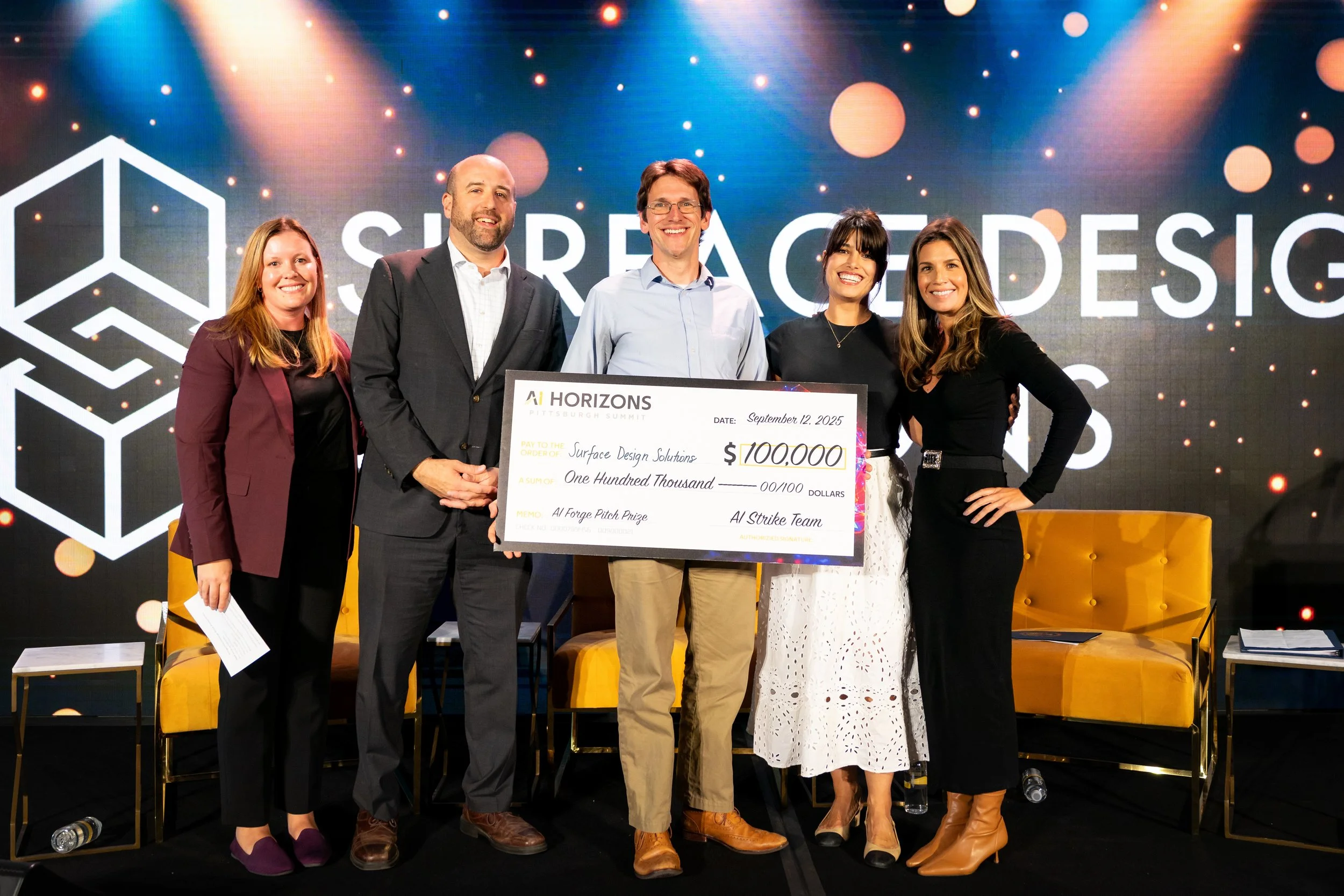
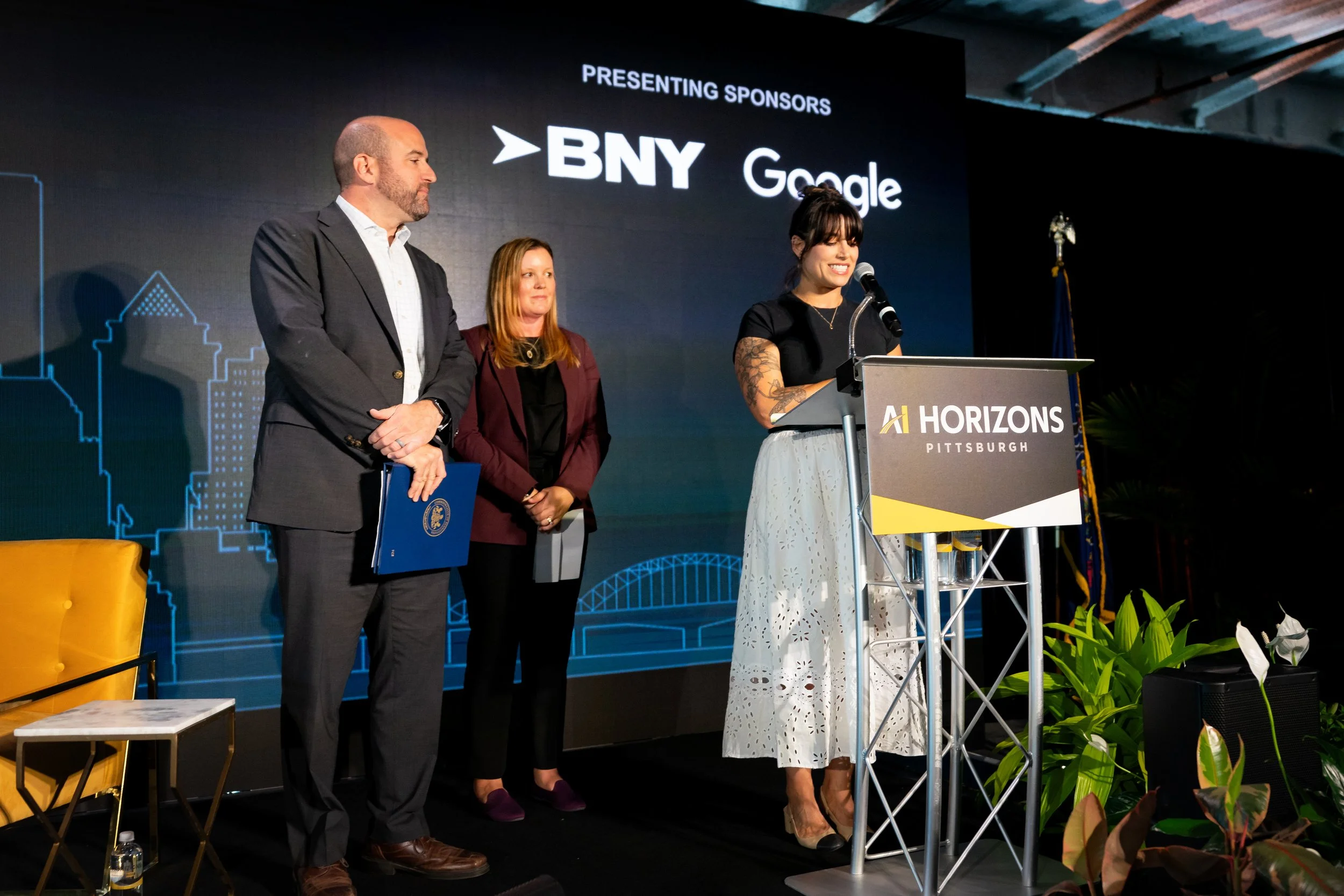
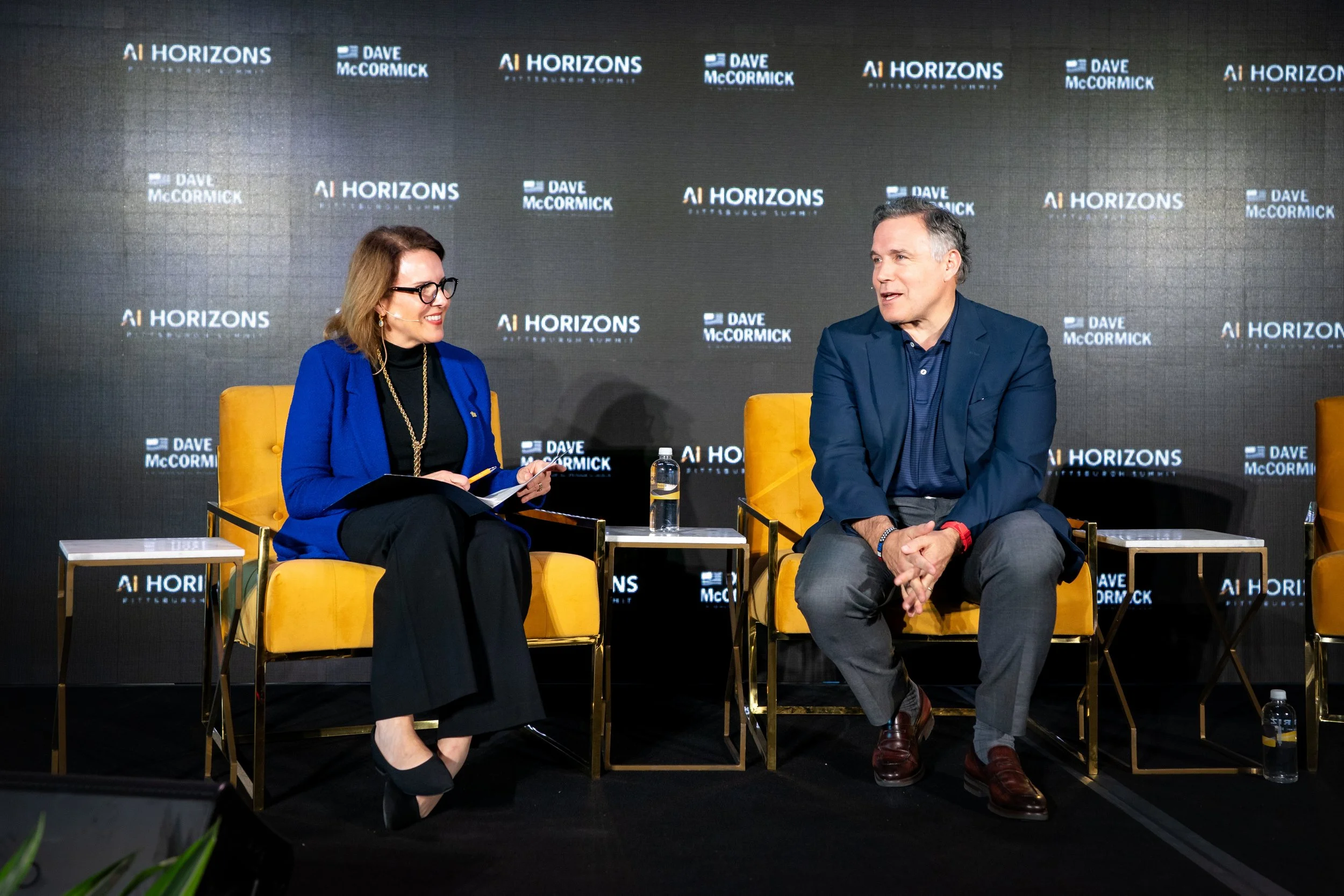
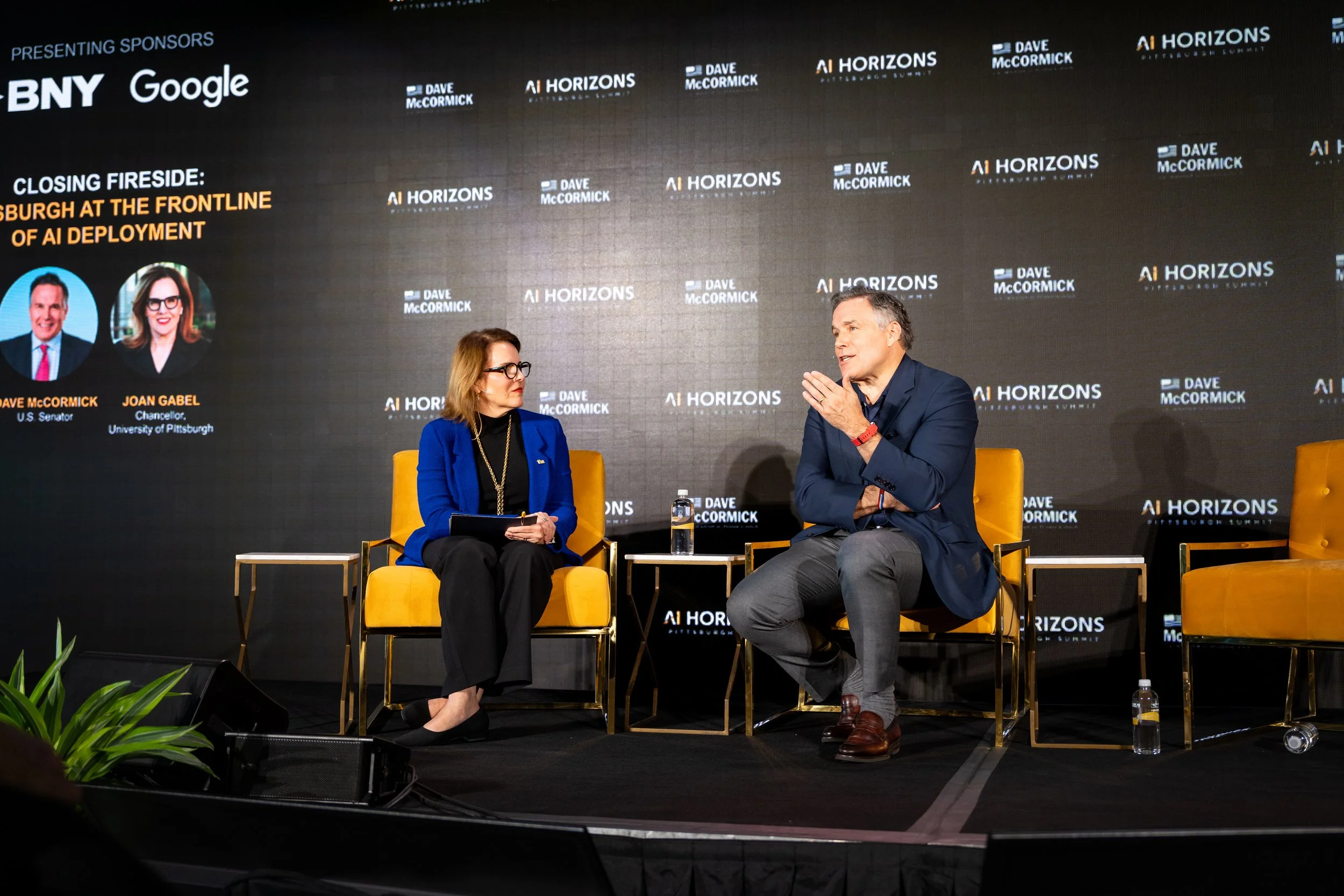
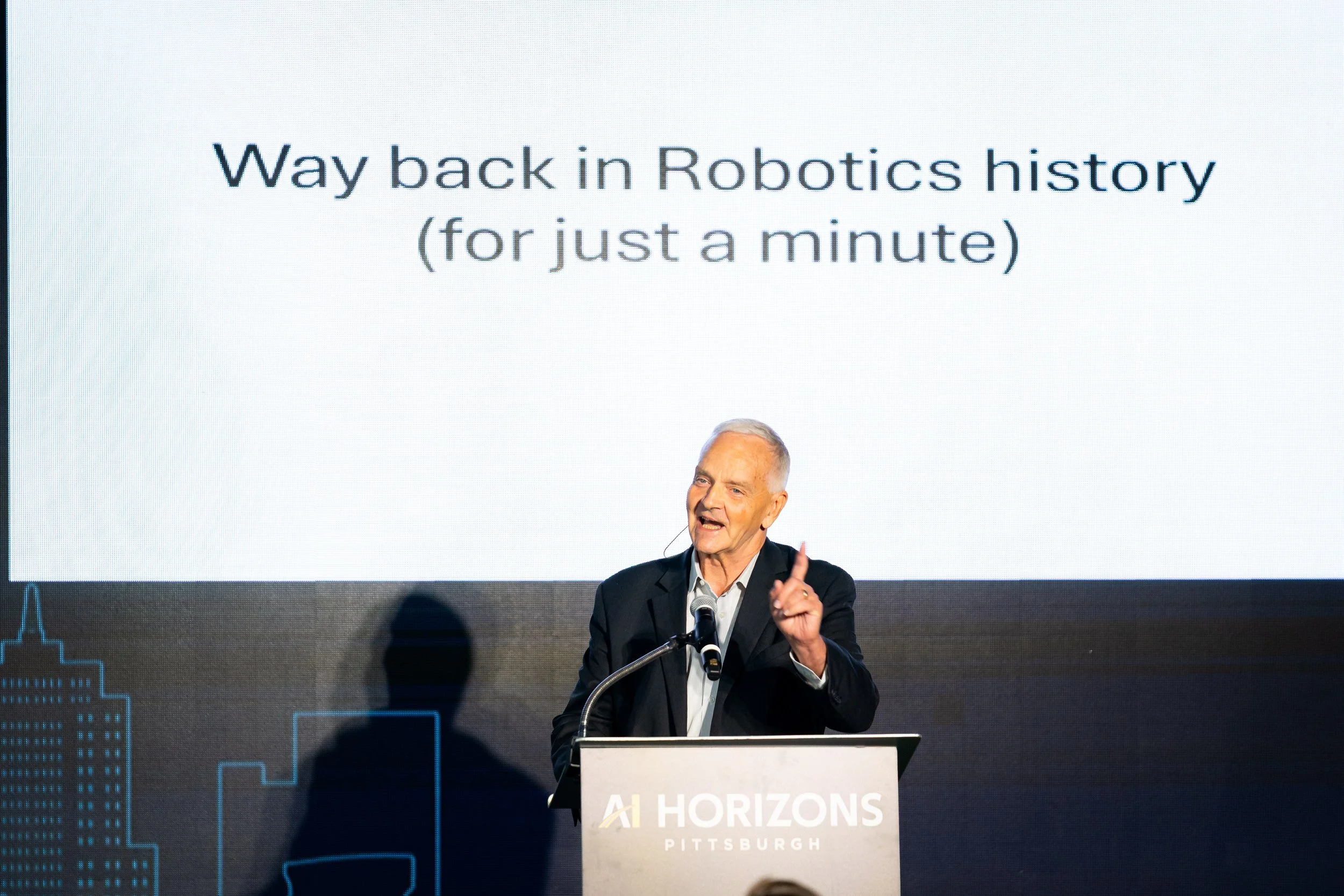
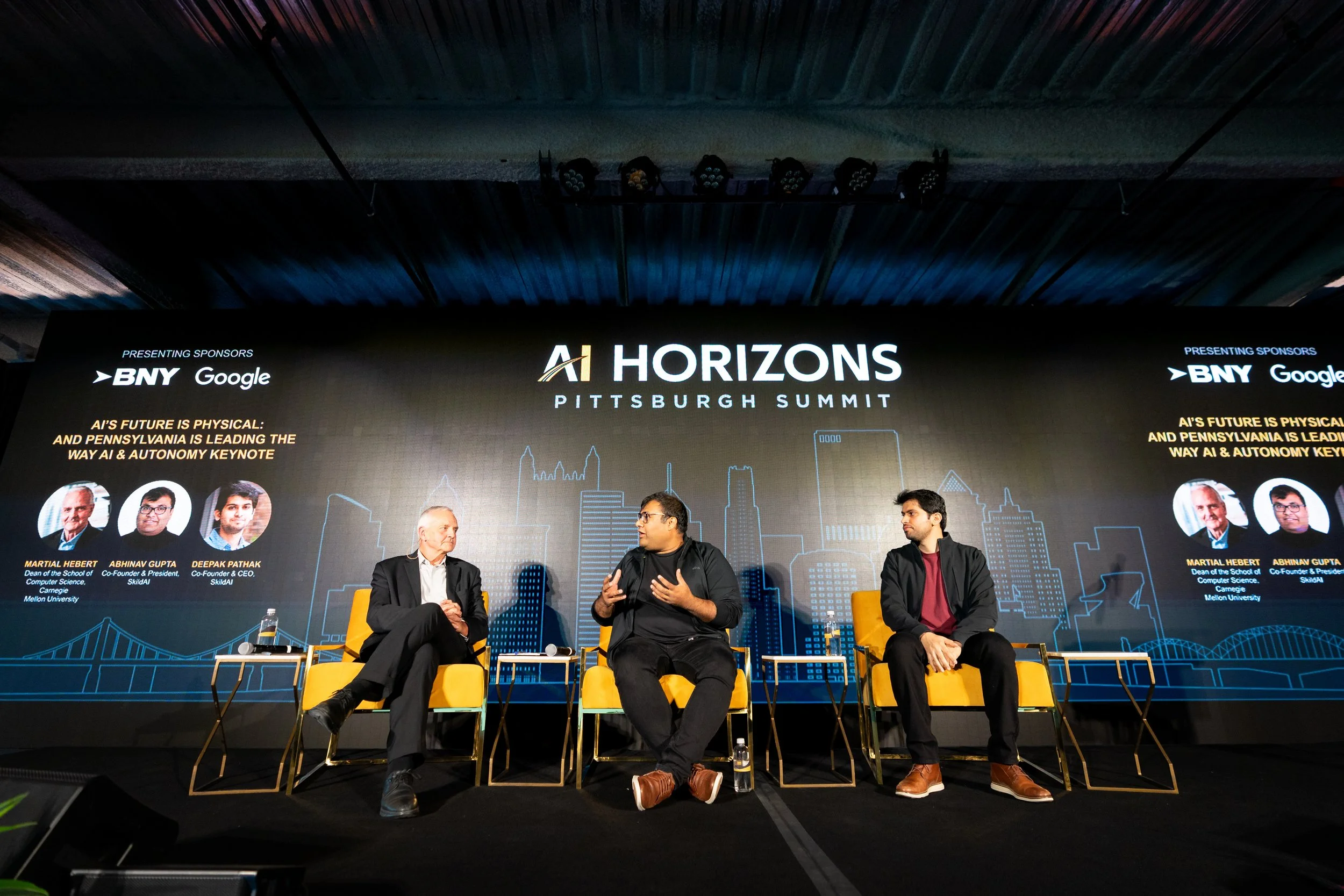
$13 Billion in 2 Years: The Unicorn Deployment Velocity
While $13 billion in venture-backed unicorn valuations only begins to tell the story, the speed is striking: three Pittsburgh AI companies have rocketed to unicorn status since 2023, now collectively valued at over $13 billion.
Skild AI achieved a $4.5 billion valuation in just two years, Abridge doubled its milestone from $2.75 billion to $5.3 billion within four months—faster than nearly any American unicorn and already powering clinical operations nationwide. Jake Loosararian’s Gecko Robotics reached a $1.25 billion valuation in June 2025, redefining infrastructure inspection and the supply chain for America’s aging industrial base
However, Loosararian warned against over-hype, arguing Pittsburgh needs more proven successes and ROI to truly claim AI city status.
These aren't just startups—they're working solutions to century-old problems.
95 Minutes Saved Daily: The Deployed ROI Revolution
According to Governor Josh Shapiro, Pennsylvania state employees save 95 minutes daily using ChatGPT Enterprise.
Implementation has been smooth: 85% report positive experiences, and notably, 48% were first-time AI users—proving execution at scale works. Already, 1,300 state employees completed InnovateUS AI training, with 3,200 more enrolled and actively using AI tools.
Governor Shapiro has expanded rollout to all 80,000 qualified state employees.
"I see AI not as a job replacer but a job enhancer," Governor Shapiro emphasized, joining CMU President Farnam Jahanian onstage. "Folks shouldn't fear AI."
The ripple effects are transformative: 30% faster hiring, reducing time from 90 days to 60—a 3:1 productivity multiplier actively transforming government operations. Remarkably, Pennsylvania's 30-day permit processing guarantee has issued only 5 refunds total in the past year.
Senator Dave McCormick reinforced the urgency: "Deployers need innovators. Innovators need real problems to solve today."
70 Hours Monthly: Healthcare's Deployed Time Dividend
Dr. Shiv Rao's Abridge exemplifies Pittsburgh's practical approach by ending physician "pajama time" through AI documentation, saving 70+ hours monthly.
The problem Abridge is solving is immense. One study found that doctors need 30 hours a day to get all of their work done. This has led to severe burnout, with one survey finding 27% of nurses planned to leave the profession within 12 months. The impact of Abridge is deeply human, as one user shared in a testimonial read by Rao: "'I was sitting at dinner last week and my son asked me mommy why aren't you working right now. I told him that Abridge is a new tool that lets mommy come home early and eat dinner with her family.”
The scale is impressive: 150+ major health systems served, including Highmark Health's 14 hospitals and hundreds of clinics, with UPMC deployment expanding—all actively deployed.
"There are not enough people out there for health systems to employ," Rao explained. As a cardiologist, he understands that legacy healthcare systems desperately need AI deployed now. Rao's mission crystallized after an encounter with a patient who relied on her husband to take notes during appointments. "She told me that him taking notes meant that she could be more present with me," Rao recalled. "What she was looking for was more agency in her care journey... If AI can create more agency for people then we're doing it right.”
“We were the epicenter of growth and development and revolution because of the coal under our ground, because of the steel that we’ve made here. This is the next chapter in our innovative growth as a commonwealth.”
1.1 Million Businesses: Google's Pennsylvania Deployment
Google made a telling choice: it selected Pennsylvania for its first AI Accelerator for Small Businesses in America—not California, not New York, but Pennsylvania, where AI gets put into practice.
This initiative launched at the summit, aiming to reach 1.1 million Pennsylvania small businesses with no-cost AI resources for immediate deployment. On day one alone, 50 businesses were trained, with all 20 Carnegie Library branches engaged through December 2027.
The $25 million investment signals Google's recognition that Pittsburgh is where AI moves from concept to execution, where solutions find immediate, practical application.
Additionally, the Westinghouse partnership for nuclear power addresses a critical need—solving the energy equation for deployed AI through next-generation nuclear solutions.
Watch Day 2 of the Summit
$20 Billion+: The Money Already Moving Through Pennsylvania
Amazon's $20 billion Pennsylvania commitment—the largest private sector investment in state history—was just the beginning. The project will employ 10,000 tradespeople with construction starting immediately. Notably, Amazon received $0 in state incentives—all Pennsylvania money went to university workforce development instead.
New implementations emerged throughout the summit. BNY announced its $10 million CMU AI lab partnership, emphasizing how these longtime Pittsburgh institutions aim to create responsible, resilient AI solutions. From Pittsburgh, BNY's AI systems already manage $50 trillion in global assets—not someday, but today.
Google President Selin Song unveiled the Google AI Accelerator for Pennsylvania Small Businesses as part of the AI Works for America initiative, targeting 1.1 million small businesses statewide with no-cost resources. The program includes live, hands-on workshops led by Pennsylvania AI Coaches, plus access to Google AI and Prompting Essentials courses and Google Career Certificates—representing a $25 million investment. With 50 businesses trained on day one, the program will reach all 20 Carnegie Library branches through December 2027.
Google's infrastructure commitment is equally impressive: a $3 billion, 20-year power purchase for 670 megawatts from Pennsylvania hydroelectric facilities—the world's largest corporate clean power deal for hydroelectricity, powering AI deployment now.
Seven Pennsylvania startups competed for the $100,000 Forge AI Prize, but the real story lies in the numbers: 80 applied, and winner Surface Design Solutions had already secured $375,000 from the Richard King Mellon Foundation, bringing total recent funding to $475,000. One global manufacturer using their platform has seen 35% production efficiency increases—deployed, measured, proven.
The venture capital presence revealed why global capital flows here: Andreessen Horowitz, SoftBank, Redpoint, J.P. Morgan, Bank of America, and X Moonshot Factory are all betting on deployed AI.
BNY CEO Robin Vince's warning resonated: "The way to get left behind in the next 10 years is to not care about AI."
The funding momentum is undeniable: Pittsburgh startups raised $689 million in Q1 2025 alone—eclipsing all of 2024 with 112% year-over-year growth. Only San Francisco grew faster. Notably, 33 new venture firms invested for the first time.
Since 2020, 83% of all Pittsburgh VC dollars have gone to AI companies, compared to just 47% in Boston. Software VC has doubled every two years since 2020, and Pittsburgh has now surpassed Austin in AI software VC.
They're betting on deployment over development.
19.5 Gigawatts by 2027: Powering Deployed AI
By 2027, Pittsburgh will command 19.5 gigawatts—dwarfing Austin's 3.2 gigawatts.
Eight data center projects are underway, creating 200,000 jobs and building AI infrastructure.
The urgency is clear: Goldman Sachs projects data center power demand will grow 160% by 2030, and ChatGPT queries require 10 times more electricity than Google searches—deployed AI needs real power.
EQT CEO Toby Z. Rice highlighted the challenge: "Power and the ability to consume it is going to be one of the biggest challenges we face when expanding the use of AI."
As Groq's Ian Andrews put it: "Electricity can be turned into intelligence. The cost of power is equivalent to the cost of intelligence from now going forward."
Westinghouse's Dan Sumner offered practical solutions: "To meet the needs and demands of AI and for this country to win the AI race nuclear energy is a key part of the equation." Westinghouse currently has the only fully licensed, construction-ready modular reactor available today.
But here's the twist—deployed AI isn't just consuming energy. Summit speakers emphasized how AI systems now optimize energy infrastructure more efficiently than human operators, creating a virtuous cycle where this innovation could potentially solve its own challenges.
What the Numbers Say: The AI Deployed City
These metrics tell a clear story: The Steel City became the Sports City, and now it's the AI Deployed City.
The summit's growth tells its own story: it doubled in size, attracted major sponsors, and created overflow rooms where innovators meet deployers. With 1,000+ on the waitlist and 10 countries watching via livestream, Technical.ly's minute-by-minute coverage documented deployed AI in action across three days. Even Pennsylvania Council on the Arts showcased AI-powered creative innovations, demonstrating creative uses beyond traditional tech sectors.
Governor Josh Shapiro connected past to deployed future: "We were the epicenter of growth and development and revolution because of the coal under our ground, because of the steel that we've made here. This is the next chapter in our innovative growth as a commonwealth."
Senator McCormick cut to the chase: "Pennsylvania is where the action's at."
The summit revealed three deployment realities:
Legacy industrial giants need deployed AI today, while AI innovators grow where problems get solved in production
Physical AI execution is happening now, with measurable productivity gains transforming operations
Old titans plus new unicorns create sustainable operational advantages
While others debate AI's potential, Pittsburgh puts it into practive. Others raise capital; Pittsburgh raises capital and deploys robots. Others talk transformation; Pittsburgh's workers save 95 minutes daily.
The story these numbers tell isn't about winning a race—it's about building an ecosystem where AI moves from research to reality, from labs to life, where America's oldest companies implement its newest innovations today.
AI Horizons 2026 details are still to be announced. Based on this year's deployment trajectory, expect another capacity expansion.
